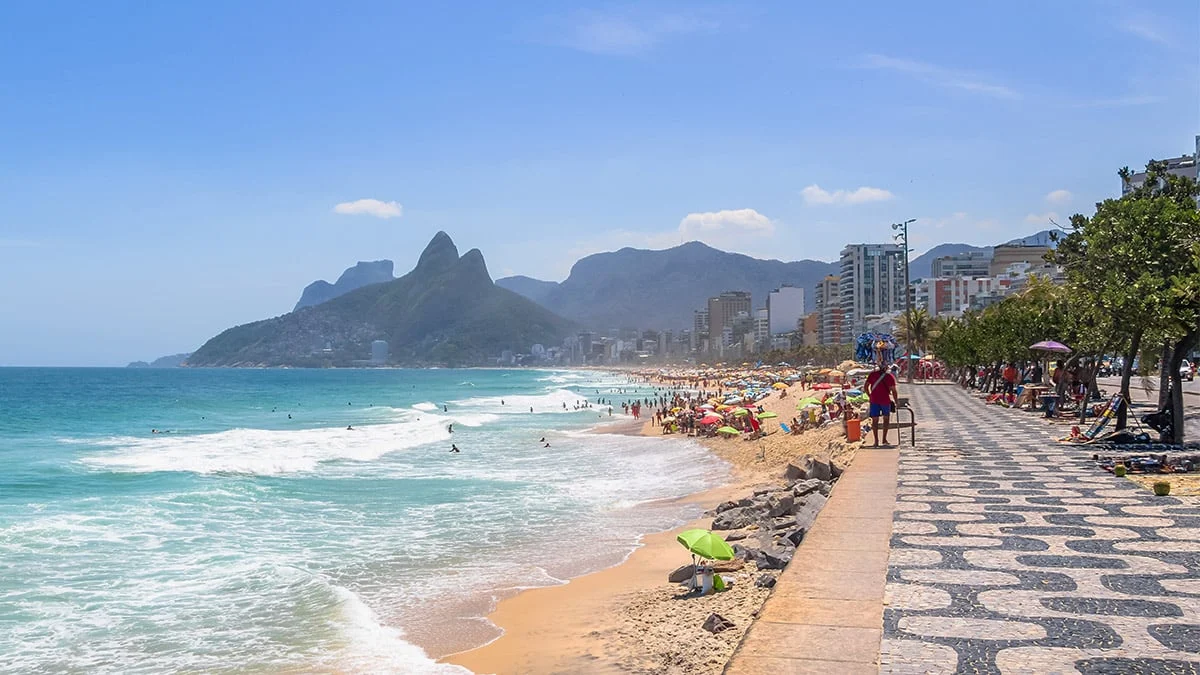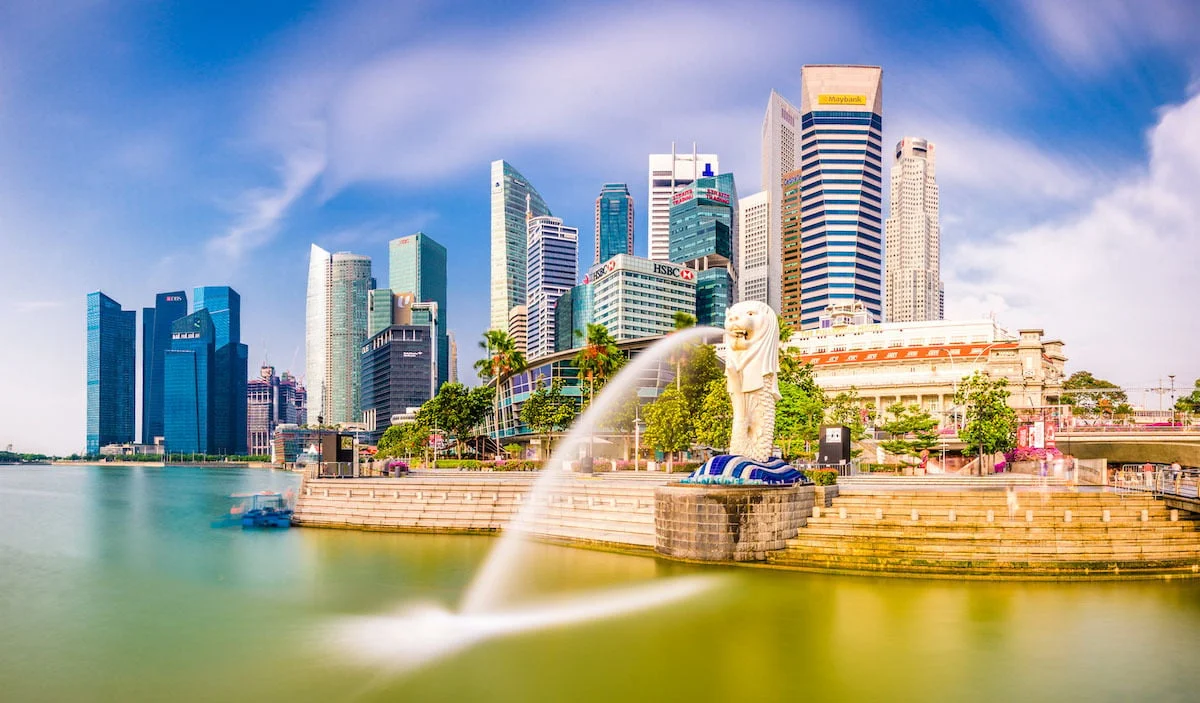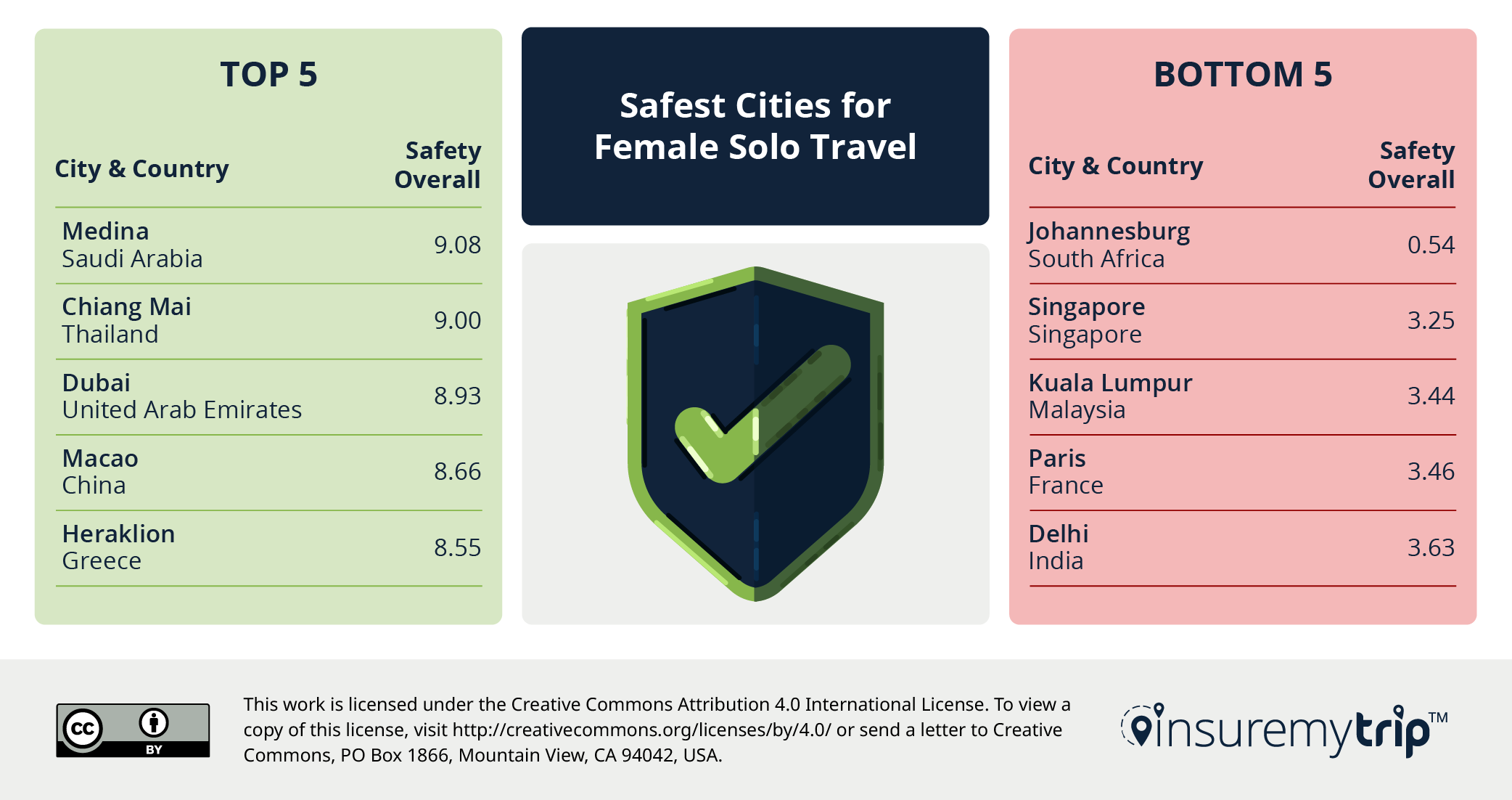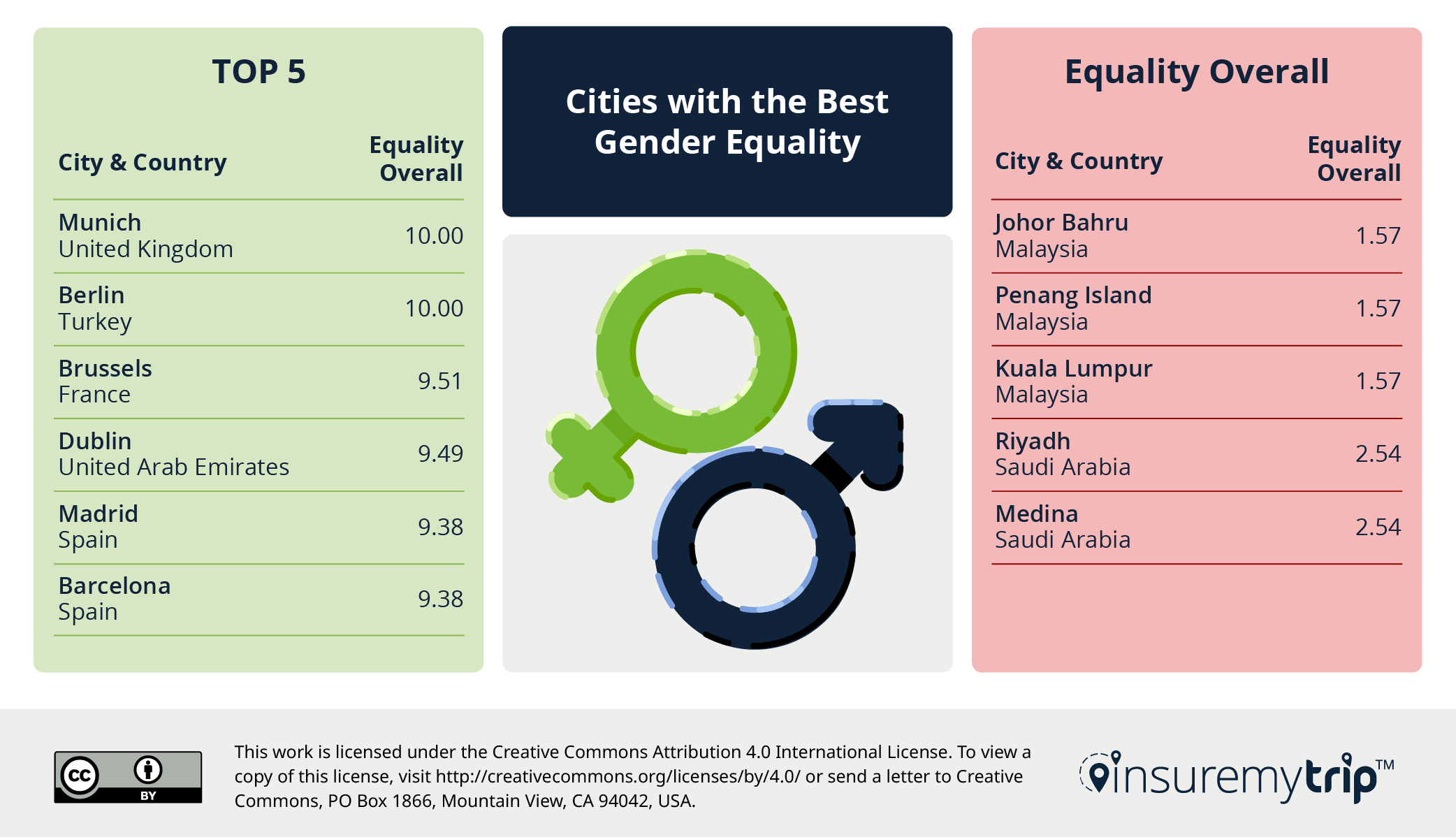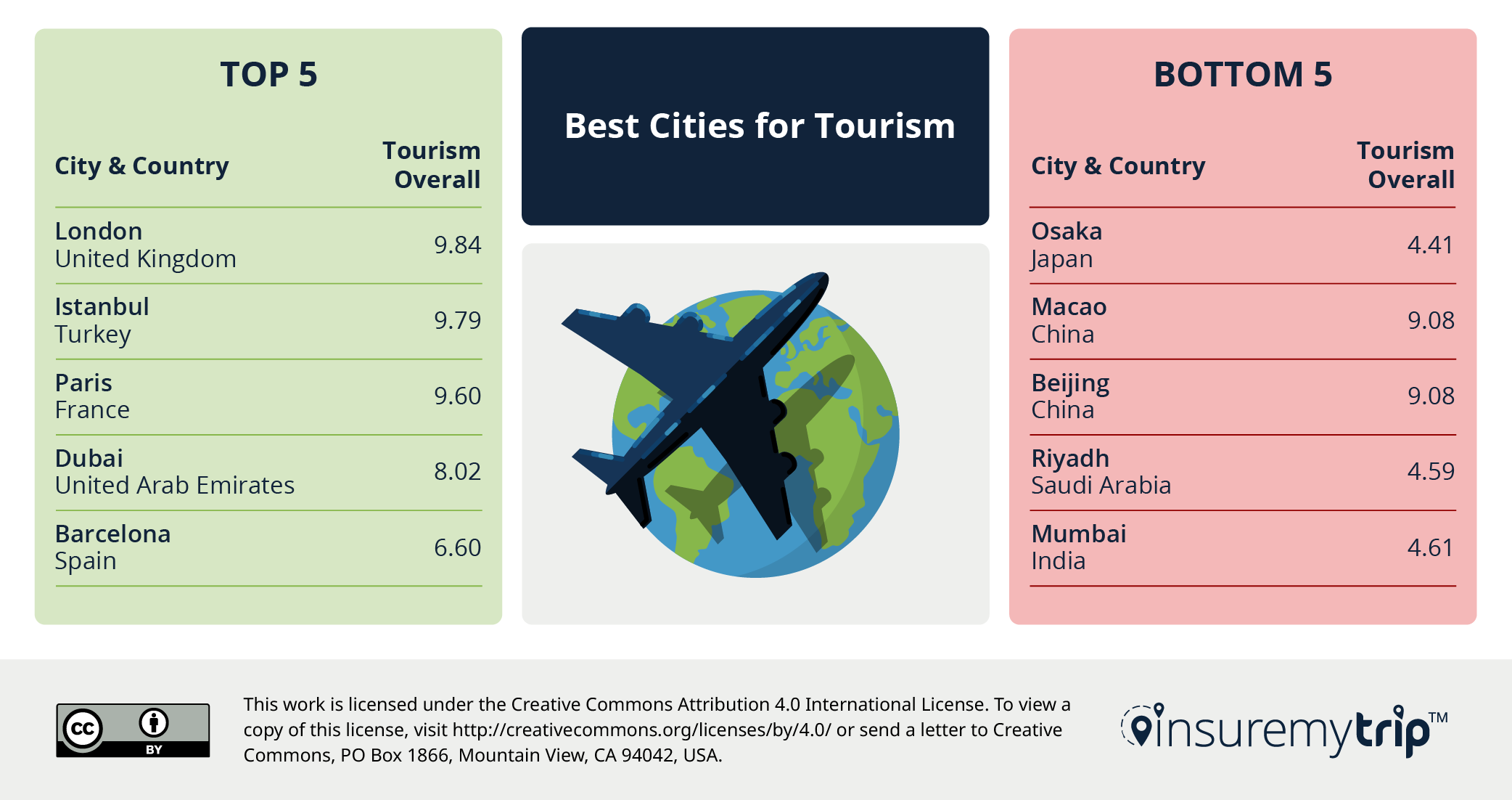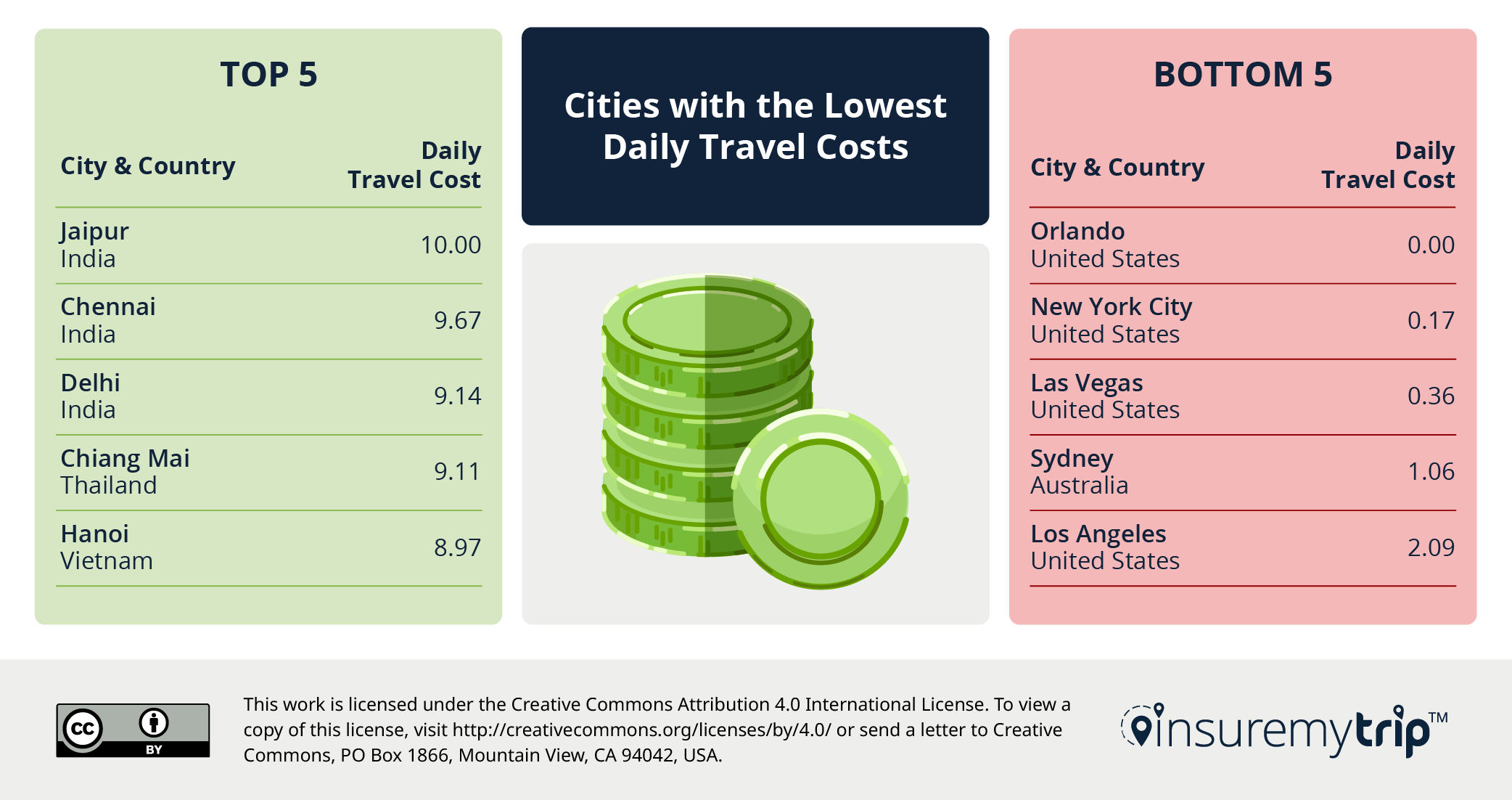Author: Sara B
Travel Insurance for Egypt
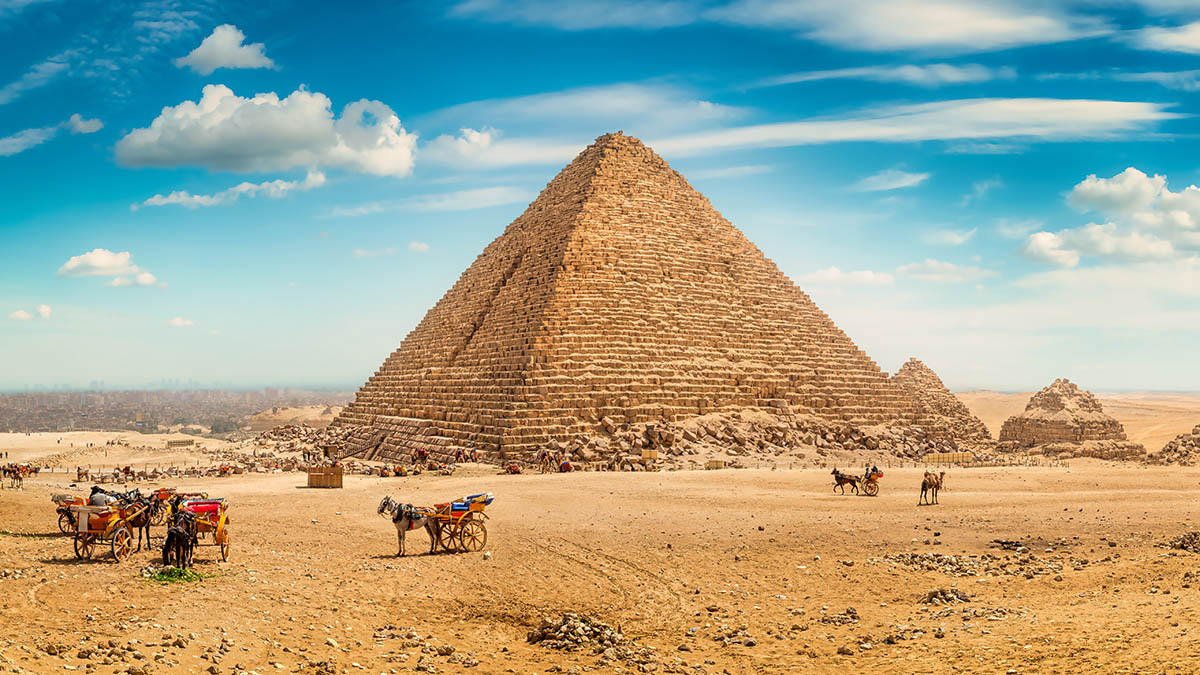
Travel Insurance for Egypt
Travel & Safety Tips for Egypt
Popular Egypt Travel Destinations
Egypt Embassy & Consulate Information
Is Travel Insurance Mandatory for Egypt?
Travel insurance is not required for all visitors to Egypt, but it is required for some and recommended for all. As regulations sometimes change, the U.S. Embassy in Egypt advises travelers to contact their nearest Egyptian Consulate or the Egyptian Embassy in Washington D.C. for the most updated travel insurance requirements.
While coverage may be optional for some travelers, international trips can be unpredictable – and travelers are highly recommended to be protected in case of injury or illness while abroad, as well as travel-related disruptions like cancellation or delays.
How Much is Egypt Travel Insurance?
The price of travel insurance for Egypt will vary from plan to plan as every trip is different, and every traveler has different concerns and needs. However, you can count on similar factors to be responsible for the price of most travel insurance plans. Typically, travel insurance costs are influenced by:
- Duration of the trip
- Number of travelers
- Age of travelers
- Benefits included in the plan
Travelers can expect to pay more for their Egypt trip insurance as risk involved with the trip increases. For example, protecting a month-long trip is likely to cost more than protecting a shorter trip to the same destination.
Though adding more coverages may increase the price of your travel insurance policy, travelers going to Egypt may find the extra benefits to be well worth it if a medical emergency or other unexpected travel-related situation abroad is covered. Trip insurance may offer coverage for unforeseen circumstances like travel delay, flight cancellation, or baggage being damaged, delayed, or lost.
What is the Best Travel Insurance for Egypt Trips?
Overall, the right insurance policy for Egypt is the plan that covers most or all of your concerns regarding visiting this historic country. As health- and travel-related concerns look different for every traveler, there is no singular answer for what plan would offer all travelers the best travel protection.
However, a comprehensive travel insurance plan may offer the most benefits for travelers to Egypt. These plans often include travel medical coverage as well as coverage for a variety of travel-related circumstances. Delays due to mechanical issues or dangerous weather conditions, lost or damaged baggage, and 24-hour traveler assistance are some common coverages that may be included in comprehensive travel insurance for Egypt. Packaging these coverages together into one plan is an excellent way to address multiple travel-related concerns.
It is highly recommended for travelers to compare different types of benefits, providers, and prices to discover what an ideal travel insurance plan looks like for your next trip to Egypt. To get a quote, enter your trip information in InsureMyTrip’s travel insurance quote form and review plans recommended for you.
Travel Tips & Safety for Egypt
Money & Currency Exchange
Egypt’s official currency is the Egyptian pound (currency code: EGP). Though the Egyptian pound shares a common name and symbol (£) with the British “pound sterling,” they are two entirely different currencies. Travelers may see prices marked by the symbols LE or £E when paying for services or shopping in Egypt. One Egyptian pound can be divided into 100 piastre, or PT. Egypt uses both banknotes and coins, with banknotes available in denominations of LE 1, LE 5, LE 10, LE 20, LE 50, LE 100, and LE 200. 25 PT and 50 PT notes also exist but are rarely used. Coins come in values of 25 PT, 50 PT, and LE 1. Credit cards are largely accepted in cities and tourist destinations, but cash is often necessary for tipping, buying from local markets, and paying for goods and services in less-traveled areas. Even hotels in rural regions may ask for payment in cash.
Some businesses will accept foreign currencies like USD, but you’ll typically get the better deal by paying with Egyptian pound. Either way, you’re likely to get your change back in Egyptian pound. It’s best to carry small bills instead of larger bills, as tipping in Egypt is customary. Many travelers choose to bring cash from home and exchange it to the Egyptian pound after arriving in Egypt. ATMs and airports can exchange your foreign currency to Egyptian pound, but exchange offices generally offer better deals.
Transportation
Public transportation in Egypt includes air, ground, and water routes to accommodate many types of trips. Domestic flights and trains are centered around the capital, Cairo, while buses operate throughout the country to connect cities with more remote locations. Although Egypt’s buses are plentiful and affordable, they’re generally crowded and relatively slow. A faster and more comfortable alternative, microbuses have less room for standing so each passenger is expected to have their own seat for the duration of the ride. The ever-popular taxi is largely relied upon in cities and around beach resorts. Taxis come in two varieties: white taxi and black taxi. White taxis operate on meters, while black taxi fares can be negotiated – just be sure to double-check the price before the ride starts.
Egyptians have historically settled near the Nile, so a number of the country’s beloved attractions are located along the river. To reach them, many travelers opt for scenic river bus rides. Other ways to get down the Nile include traveling by luxury cruise ships or the basic felucca, a classic Nile boat with much more modest features.
Risk & Crime
While it’s best to avoid certain regions in Egypt, travelers who are vigilant and careful can typically still expect to safely visit major tourist destinations. The U.S. State Department recommends visitors to Egypt avoid the Sinai Peninsula, the Western Desert, and areas near Egypt’s borders with other countries due to potential military and terrorist activity. However, when visiting cities like Alexandria and Giza, travelers may only have to be wary of things like pickpockets and tourist scams.
Pickpocketing can generally be avoided by dressing modestly and keeping your belongings hidden and accounted for. For example, always know where your wallet, cell phone, and important travel documents are, and make sure they’re completely inaccessible to strangers. One common scam in Egypt involves locals befriending tourists only to gain their trust and “hold” their belongings if they need to use the restroom, ride a ride at an amusement park, etc. However, this isn’t always the case, and although most Egyptians may be perfectly friendly and genuine, you still shouldn’t leave your valuables with anyone.
As for weather-related risks, sandstorms usually occur for a few days every March or April and then clear up. Occasionally, sandstorms may also be triggered any time from February to June. It may be important to know how travel insurance may help you in case of weather-related events.
Top 15 Travel Destinations & Tourist Attractions in Egypt
- Alexandria
- Giza Necropolis
- Cairo
- Luxor (Including Valley of the Kings & Karnak Temple)
- Aswan
- Abu Simbel Temples
- Sharm el-Sheikh
- Saqqara Necropolis
- Hurghada & El Gouna
- Siwa Oasis
- Désert blanc (White Desert National Park)
- Dahshur
- St. Catherine’s Monastery
- Dendera
- Wadi Hitan National Park
U.S. / Egypt Embassy and Consulate Locations
U.S. Embassy in Egypt
- U.S. Embassy Cairo
5 Tawfik Diab Street
Garden City, Cairo
Phone: 20.2.2797.3300
Egyptian Embassy and Consulate in USA
- Washington DC – Egyptian Embassy
3521 International Ct NW
Washington DC 20008 United States
Phone: 1.202.895.5400 - Los Angeles, California – Egyptian Consulate General
4929 Wilshire Blvd, Suite 300
Los Angeles, CA 90010 United States
Phone: 1.323.933.9700 - Chicago, Illinois – Consulate General of Egypt
500 N Michigan Ave
Chicago, IL 60611 United States
Phone: 1.312.828.9162 - New York, New York – Egyptian Consulate General
1110 2nd Ave, Suite 201
New York, NY 10022 United States
Phone: 1.212.759.7120 - Houston, Texas – Consulate General of the Arab Republic of Egypt
5718 Westheimer Rd Ste 1350
Houston, TX 77057 United States
Phone: 1.713.961.4915 - New York, New York – Egyptian Permanent Mission to the UN
304 East 44th Street
New York, NY 10017 United States
Phone: 1.212.503.0300
Disclaimer: The information contained in this article serves as a general overview of benefits and should only be used for informational purposes. Refer to your individual certificate of insurance for specific coverages, exclusions, and benefits. When in doubt, please contact one of our licensed agents for additional assistance.
Travel Insurance for Indonesia

Travel Insurance for Indonesia
Travel & Safety Tips for Indonesia
Popular Indonesia Travel Destinations
Indonesia Embassy & Consulate Information
Do I Need Travel Insurance for Indonesia?
While the travel medical insurance requirements have recently been removed, we continue to recommend purchasing travel insurance for trips to Indonesia. Traveling overseas comes with risk and when travelers have made a significant investment of time and money, it makes sense to protect against surprise costs and travel mishaps.
COVID-19 impacted international travel in an unprecedented way and changed the way we think about travel planning. Buying an international travel health plan for Indonesia helps protect against illness and injury, but a comprehensive plan may offer coverage in the case of lost or damaged baggage, travel delays, trip interruption, or a variety of other disruptions that may affect your travel plans to Indonesia. All things considered, it’s best to be prepared for travel-related mishaps before they occur.
How Much Does Indonesia Travel Insurance Cost?
Just as every trip and traveler is unique, the cost of travel insurance varies depending on the details of your trip. The cost of travel insurance for Indonesia depends on the number of people in the traveling party, the travelers’ ages, is the length of the trip, and the coverages included in the plan.
Typically, a higher price for Indonesia travel protection is due to a higher level of risk for the trip. This means that insuring a trip for a large party of travelers or a longer time may, in general, cost more than a shorter trip or one with less travelers.
What is the Best Travel Insurance for Indonesia Trips?
Most travelers going to Indonesia want to know what travel insurance plan is best for a trip to this scenic island nation. Though the most beneficial Indonesia travel insurance looks different for every traveler, some common coverages to consider for your next Indonesia trip include:
- Emergency medical evacuation
- Disruptions due to inclement weather
- Lost or damaged baggage
- Trip cancellation
Travelers may also consider coverage that relates to specific activities on the islands – for example, some tourists may want to know what travel insurance will cover for trips near a volcano, while others might look for the best travel insurance to offer coverage for surfing in Indonesia.
Experienced travelers tend to prefer comprehensive travel insurance plans for Indonesia. A comprehensive travel insurance plan would often include travel medical insurance as well as coverage for expenses related to delays in transportation, baggage issues, and more.
Ultimately, the best travel insurance option for you is one that offers coverage that suits your specific trip details and personal needs. It’s recommended to compare a variety of different providers and coverage levels to get a sense of what your ideal travel protection for Indonesia looks like. InsureMyTrip’s free travel insurance quote form can help you get started finding the best Indonesia travel insurance for your next trip to the gorgeous Asian islands.
Travel Tips & Safety for Indonesia
Money & Currency Exchange
Indonesia’s official currency is the Indonesian rupiah, with the currency code IDR. You’ll find prices in Indonesia marked as Rp. As for cash, Indonesian banknotes are available in denominations of 1000, 2000, 5000, 10000, 20000, 50000, and 100000 rupiah, while coins come in values of 50, 100, 200, 500, and 1000. Many businesses in tourist hot spots like Bali will take credit cards, but travelers are going to need some rupiah for most other locations in Indonesia. Many banks, airports, and hotels can change your money to Indonesian rupiah, but the best exchange rates are usually found by talking to money exchange services. Find money exchangers around places like shopping centers or look online to identify what’s closest to where you’re staying. Don’t forget to haggle for the best prices – such negotiations are customary in Southeast Asia!
Transportation
To get around Indonesia, travelers may rely on flights, water taxis/ferries, or ground transportation like taxis, trains, and buses. Domestic flights connect more than 30 airports throughout the island nation and are often the quickest route to get from point A to point B. Tourists and locals alike also heavily rely on water taxis/ferries that stop at nearly every inhabited island in Indonesia. If you want to sail in style, many of the European-style water taxis offer different classes that vary in price and comfort.
On land, taxis are readily available in major cities like Jakarta, Surabaya, and Medan. You’ll usually get the best deal by insisting to use the meter (and finding another taxi if the driver refuses). Buses run throughout a large portion of Indonesia, but while they are cheaper, buses in Indonesia are generally less reliable and safe than taxis. The islands of Java and Sumatra both boast rail systems – Sumatra’s rail network is more of a local operation, while Java offers some long, scenic routes between major destinations, some just a short ferry ride from Bali.
Risk & Crime
Indonesia is considered a moderately safe country to visit. Locals are friendly and hospitable, but the risk of tourist scams and pickpocketing is relatively high compared to other destinations. However, most travelers can still expect their trip to go smoothly if they stay vigilant. Cities like Jakarta in particular contain pickpockets who target travelers, as travelers are expected to carry more valuables and credit cards. To combat this risk, leave your valuables locked in your hotel safe or carry them very close whenever possible, even in taxis.
Most countries face some type of risk of natural disasters, and Indonesia is no exception. Because Indonesia lies on the Pacific Ring of Fire, the island nation is susceptible to earthquakes, tsunamis, and volcanic activity. Refer to Indonesia’s Meteorological, Climatological, and Geophysical Agency forecasts for the most up-to-date weather and wind information before your trip.
Top 15 Travel Destinations & Tourist Attractions in Indonesia
- Raja Ampat
- Komodo National Park
- Bali
- Lake Toba
- Lombok
- Tana Toraja
- Borobudur
- Yogyakarta
- Bromo Tengger Semeru National Park
- Gili Islands
- Jakarta
- Tanjung Puting National Park
- Bukit Lawang
- Bandung
- Labuan Bajo
U.S. / Indonesia Embassy and Consulate Locations
U.S. Embassy and Consulates in Indonesia
- Jakarta, Indonesia – U.S. Embassy Jakarta
Jl. Medan Merdeka Selatan No. 3 – 5
Jakarta 10110 Indonesia
Phone: 62.21.5083.1000 - Bali, Indonesia – U.S. Consular Agency
Jl. Hayam Wuruk 310
Denpasar 80235 Bali, Indonesia
Phone: 62.361.233.605 / 62.361.246.859
After-hours Emergency Line: 62.21.5083.1000, press 0 to speak with the operator - Surabaya, Indonesia – U.S. Consulate General Surabaya
Jl. Citra Raya Niaga No. 2
Surabaya 60217 Indonesia
Phone: 62.31-297.5300 - Medan, Indonesia – U.S. Consulate Medan
Uni Plaza Building, West Tower, 4th Floor
Jl. Let. Jend. MT Haryono A-1
Phone: 62.61.451.9000
Indonesian Embassy and Consulate in USA
- Washington DC – Indonesian Embassy
2020 Massachusetts Avenue, NW
Washington DC 20036 United States
Phone: 1.202.775.5200 - Los Angeles, California – Indonesian Consulate General
3457 Wilshire Boulevard
Los Angeles, CA 90010 United States
Phone: 1.213.383.5126 - San Francisco, California – Indonesian Consulate General
1111 Columbus Avenue
San Fransisco, CA 94133 United States
Phone: 1.415.474.9571 - Honolulu, Hawaii – Indonesian Honorary Consulate
ASB Tower, Suite 2970
1001 Bishop Street
Honolulu, HI 96813 United States
Phone: 1.808.531.3017 - Chicago, Illinois – Indonesian Consulate General
211 West Wacker Drive
Chicago, IL 60606 United States
Phone: 1.312.920.1880 - Houston, Texas – Indonesian Consulate General
10900 Richmond Avenue
Houston, TX 77042 United States
Phone: 1.713.785.1691 - New York, New York – Indonesian Permanent Mission to the UN
325 East 38th Street
New York, NY 10016 United States
Phone: 1.212.972.8333
Disclaimer: The information contained in this article serves as a general overview of benefits and should only be used for informational purposes. Refer to your individual certificate of insurance for specific coverages, exclusions, and benefits. When in doubt, please contact one of our licensed agents for additional assistance.
Travel Insurance for Malaysia
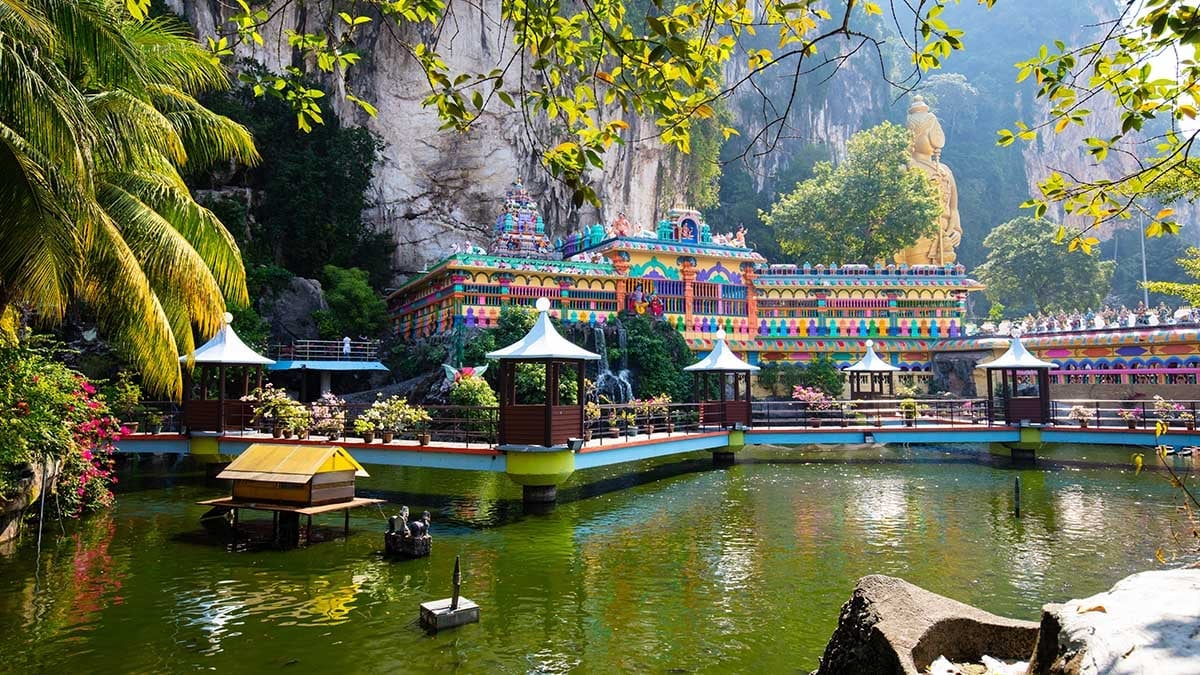
Travel Insurance for Malaysia
Travel & Safety Tips for Malaysia
Popular Malaysia Travel Destinations
Malaysia Embassy & Consulate Information
Is Travel Insurance Mandatory for Malaysia?
No, travel insurance is not required to enter Malaysia. While coverage is optional, Malaysia travel insurance is highly recommended to protect against the unexpected while overseas. Even the most well-planned trips may be disrupted by issues like inclement weather, airline delays, or accidents that require medical attention. With the assistance of international insurance for Malaysia, such situations may be much more manageable.
How Much Does Malaysia Travel Insurance Cost?
Due to the uniqueness of every trip to Malaysia, there is no universal price for a travel insurance plan. However, you can expect the price of travel insurance for Malaysia to vary depending on four major factors:
- Duration of the trip
- Number of travelers
- Age of the travelers
- Type of coverage
In general, Malaysia travel insurance rates may increase depending on these factors because, with more variables, there is more risk attached to the plan. For example, if you are traveling to Malaysia for three weeks, as opposed to only one week, you are opening yourself up to more medical risks and risk of travel interruption. These are both reasons to use your plan. The same can be said if you are traveling with four to five people, as opposed to just two.
A traveler can generally expect the cost of Malaysia trip insurance to increase as new benefits are added, though this may not always be the case. Though more benefits and higher coverage limits may raise the total price of a plan, many travelers find a robust policy to be worth the investment.
Can I Buy Travel Insurance After Departure for Malaysia?
Sometimes. Generally, you must purchase travel insurance coverage before it is needed. Some travel medical plans may be available for purchase after you have departed, but comprehensive plans that include medical coverage must be purchased before departing.
However, you can’t buy any medical coverage once you recognize a need for medical attention. This also applies to all travel insurance coverage – once you recognize the need, it is too late to protect your trip.
For most travelers, the best time to purchase your travel insurance plan for Malaysia is after making your first trip payment. Some popular optional benefits offering valuable coverage are time-sensitive, generally only available 10 to 21 days after your initial trip payment.
If you have any questions about last-minute travel insurance for your trip to Malaysia, contact our Customer Care team for assistance.
What is the Best Travel Insurance for Malaysia Trips?
The best Malaysia trip insurance depends on the unique needs and trip details of the travelers. For example, adventure-seeking tourists may opt to get coverage for high-risk activities like paragliding and surfing while in Malaysia, while others might prioritize having access to coverage related to trip cancellation.
Many seasoned travelers find comprehensive plans to be the right policy for their trip to Malaysia, as these plans offer the most travel-related coverage options. A comprehensive trip insurance plan for Malaysia often includes travel medical as well as coverage for lost baggage and delays or disruptions in flight schedules or other transportation services.
The best way to find the right travel insurance for your trip to Malaysia is to compare different plans and providers who may offer the coverage you need for your next trip. The travel insurance quote process from InsureMyTrip is a fast and free tool that can filter through an array of coverage being offered by providers now to create a list of unbiased results that may work well for your next trip.
Travel Tips & Safety for Malaysia
Money & Currency Exchange
Malaysia’s official currency is the Malaysian Ringgit (MYR). Prices in Malaysia will often be denoted by the symbol RM, the same symbol you’ll find on banknotes in Malaysia (RM1, RM2, RM5, RM10, RM50, or RM100). A ringgit can be divided into 100 sen. Sen are produced as coins with a value of 5, 10, 20, or 50. Be advised that some Malaysians use the term “dollar” interchangeably with “ringgit” and vendors may even use the dollar sign prefix to mark prices. Even if you hear a vendor say “dollars,” assume that the price will still be in Malaysian ringgit.
Many businesses in major destinations take credit cards but may charge hefty transaction fees. Consider using an ATM at a bank or airport or a money exchange service in Malaysia if you want to change your money to Malaysian ringgit. Although it’s often more convenient to exchange money at an airport, hotel, or bank, money exchange services found in cities often offer better rates.
Transportation
Getting around Malaysia can be a breeze with an extensive and versatile public transportation system. Favored by locals, Malaysia’s modern rail system runs in most cities and is fast, comfortable, and reasonably priced. These trains, monorail, and light rail cover over 1,000 miles of rails and stop at a number of popular attractions as well as neighboring countries Singapore and Thailand. City and long-distance buses tend to vary between air conditioning and meal services or a cheaper price. Those visiting Kuala Lumpur may want to take advantage of the Go KL City Bus, a free bus service that stops at most popular attractions in Kuala Lumpur.
To complement Malaysia’s efficient ground transportation, the island nation offers domestic flights and ferries between islands. Over 30 airports are in operation between the islands of Malaysia. Of course, you can always rent your own car, bicycle, or motorcycle to explore on your own time – just keep in mind that drivers in Malaysia must sit on the right-hand side of the vehicle and drive on the left side of the road.
Risk & Crime
Malaysia is considered relatively safe to visit, with a TravelSafe safety score of 69 out of 100. While it’s best to avoid the islands off the coast of eastern Sabah due to kidnapping and terrorism, careful travelers are generally safe in most of the country. Petty crime such as pickpocketing is not uncommon, so keep your valuables hidden from view and close to your body. Whenever possible, dress modestly and avoid traveling at night. Road visibility is poor at night in some parts of Malaysia.
Surrounded by water, Malaysia does have a history of natural disasters. From October to February, the rainy season hits Malaysia, sometimes causing flooding, landslides, or tsunamis. If you travel to Malaysia between October to February, be sure to check the Pacific Tsunami Warning Centre’s website for the most up-to-date weather information.
Find the U.S. State Department’s complete travel advisory for Malaysia here.
Top 15 Travel Destinations & Tourist Attractions in Malaysia
- Cameron Highlands
- Penang
- Kuala Lumpur
- Melaka (Malacca)
- Perhentian Islands
- Gunung Mulu National Park
- Langkawi
- Kuching
- Taman Negara National Park
- Tioman Island
- Malaysian Borneo
- Ipoh
- Kota Kinabalu
- Sipadan
- Taiping
U.S. / Malaysia Embassy and Consulate Locations
U.S. Embassy in Malaysia
- U.S. Embassy in Kuala Lumpur, Malaysia
376 Jalan Tun Razak
50400 Kuala Lumpur, Malaysia
Phone: 60.3.2168.5000
Malaysian Embassy and Consulate in USA
- Washington DC – Malaysian Embassy
3516 International Court, NW
Washington, DC 20008 United States
Phone: 1.202.572.9700 - Los Angeles, California – Malaysian Consulate General
550 South Hope Street, Suite 400
Los Angeles, CA 90071 United States
Phone: 1.213.892.1238 - New York, New York – Malaysian Consulate General
313 East 43rd St.
New York, NY 10017 United States
Phone: 1.212.490.2722 - New York, New York – Malaysian Permanent Mission to the UN
313 East 43rd Street
New York, NY 10017 United States
Phone: 1.212.986.6310
Disclaimer: The information contained in this article serves as a general overview of benefits and should only be used for informational purposes. Refer to your individual certificate of insurance for specific coverages, exclusions, and benefits. When in doubt, please contact one of our licensed agents for additional assistance.
Travel Insurance for Brazil
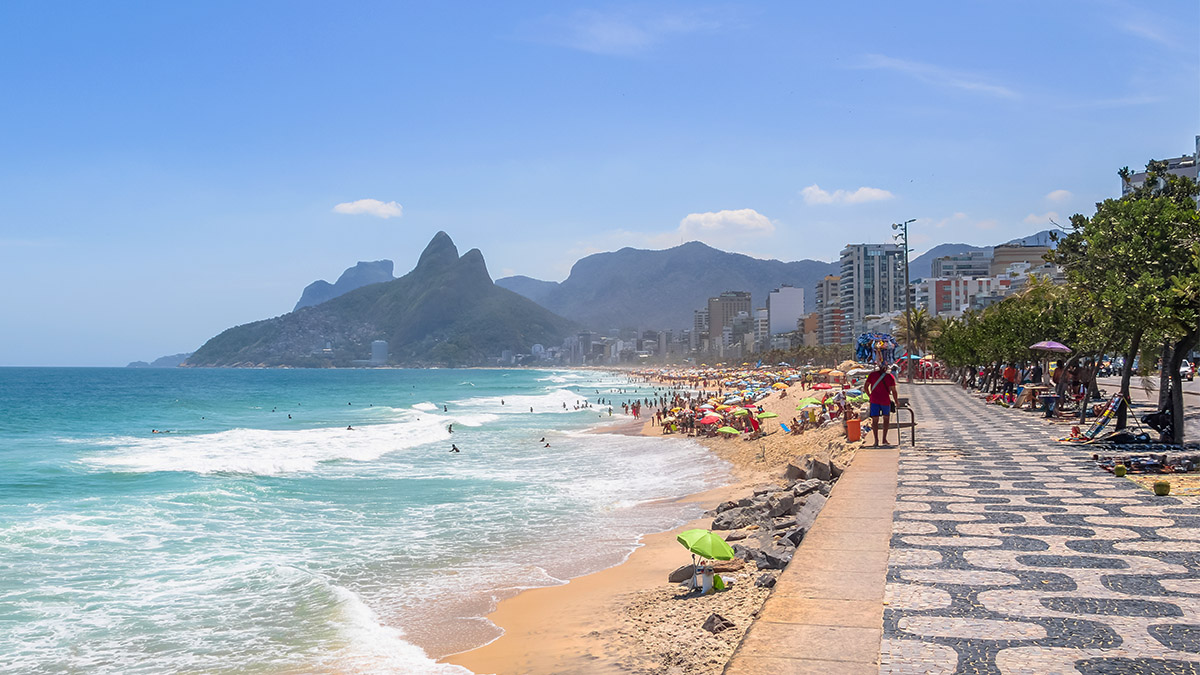
Travel Insurance for Brazil
Travel & Safety Tips for Brazil
Popular Brazil Travel Destinations
Brazil Embassy & Consulate Information
Do I Need Travel Insurance for Brazil?
No, Brazil does not require proof of travel insurance to enter the country. However, due to the unpredictability of touring abroad, we highly recommend purchasing a travel insurance policy for your trip to Brazil. Travelers visiting this beautiful South American country may encounter unforeseen situations such as lost or damaged luggage, delays at an airport, or accidents requiring medical attention. Depending on the details and benefits of your plan, travel insurance may offer coverage to help protect your trip from the unexpected.
Perhaps the most recommended coverage for Brazil is a comprehensive travel insurance plan. Comprehensive plans are best for travelers who want to receive benefits for healthcare if they get sick or hurt while in Brazil as well as their choice of additional protection, which may include coverage for:
- Weather-related delays
- Emergency Medical Evacuation
- Trip cancellation
- Disruptions in transportation services
Some plans may also reimburse you for the cost of meals, hotel rooms, or pet boarding fees that come up as the result of a delay in transportation services.
For travelers who want to be protected in the event of emergency medical care while in Brazil, travel medical insurance may fill in any gaps where domestic health insurance doesn’t extend coverage abroad. Travel health insurance can be purchased as a standalone plan or as part of a comprehensive trip insurance plan for Brazil.
Overall, while Brazil trip insurance is not required, it is recommended to purchase a policy to protect your trip against unexpected expenses.
How Much Does Brazil Travel Insurance Cost?
Brazil travel insurance rates depend on the travelers being covered, type of coverage purchased, and the length of the trip. For example, a standalone travel health insurance plan for a party of two travelers will most likely cost less than a comprehensive plan for a party of five travelers.
Prices for travel health insurance for trips to Brazil can further vary depending on factors like pre-existing medical conditions, liability amounts, and more. A good rule of thumb to remember is that as risk involved with the trip increases, the cost of travel insurance will also increase. However, if you find yourself really needing help in an emergency situation, having a plan with a higher coverage limit may be worth the additional cost as it may lessen your overall expenses.
You can always refer to our free travel insurance quote tool for a quick overview of what it might look like to cover your next trip to Brazil.
What is the Best Travel Insurance for Brazil Trips?
The best travel insurance plan for Brazil is ultimately the plan that most suits your budget, personal needs, and trip details. Due to the wide variety of coverage options available, there is no one-size-fits-all best trip protection.
However, it can be said that the most beneficial plans would likely be comprehensive plans which include Brazil travel health insurance, assistance with lost baggage and delays with airlines, and in some cases, trip cancellation.
Though trip cancellation has no specific eligibility requirements, this coverage may only apply to certain unforeseen and covered reasons. When travelers are uncertain about their trip for any reason or desire protection to cancel their trip for reasons not covered by trip cancellation, Cancel For Any Reason (CFAR) may be the right coverage to include. Keep in mind that some coverages – such as CFAR – have certain eligibility requirements, so not all travelers will qualify for all plans.
Comparing different coverage levels, benefits, and providers is the ideal way to find the right plan for your next trip to Brazil.
To find the right Brazil travel insurance plan for you, enter your trip details in InsureMyTrip’s quote form and review at the recommended plans best suited for your unique travel.
Travel Tips & Safety for Brazil
Currency & Exchanging Money
The Brazilian Real (pronounced “hey-al”) is Brazil’s official currency. Travelers may encounter Reais (plural of Real, pronounced “hey-ice”) in the form of coins, paper banknotes, or plastic-like polymer banknotes. These plastic and polymer banknotes vary in size depending on their monetary value. Paying with credit card is a viable option for visitors to Brazil, as most large establishments within cities will accept card payments. Smaller shops, cafes, or businesses outside a city may only take Brazilian Real cash, so it may be worthwhile it to pick up and carry a small amount of cash during your trip. It’s advisable to always keep your cash close to your body and try to avoid showing it off in public, especially at night.
You’ll get the most out of your money if you compare rates offered by various money exchange services, as each money exchanger may offer something different. For example, currency exchange services offered by hotels and airports tend to be of less desirable rates, though they are often more convenient to use due to their location. Banks and ATMs are a great option during business hours. Be sure to bring clean, crisp bills if you are exchanging your local banknotes for Brazilian Reais.
Transportation
Transportation within Brazil spans across air, land, and water. Getting around this huge country can be made most convenient with domestic flights, some of which cost around the same price as a long-distance travel bus. Long-distance buses provide a unique travel experience complete with scenic views, restroom facilities, wifi, and reclinable seats. Local buses within cities are another affordable option, though it may prove difficult to find a map outlining each route. When in doubt, it’s fine to ask the driver or a local around the bus stop for details.
As for taxis and water taxis (to get around from beach to beach), most will have meters, but in some cases you’ll have to agree on a price with the driver before the ride. The cities Rio de Janeiro and São Paulo offer a quick and affordable Metro system from 5am to midnight (24 hours during Rio Carnival). Many travelers, especially those outside a major city, choose instead to rent a car during their stay for the freedom to go anywhere without paying cab fare or waiting on a bus.
Risk & Crime
Like any country, certain regions in Brazil are riskier to visit than others. While in Brazil it’s advisable to avoid the favelas, land borders with other countries, and certain parts of major cities. For the most part, sticking to touristy areas and taking precautions with your valuables will lessen your likelihood of becoming a crime target in Brazil. Always stay in bright, crowded spaces during your trip and when you’re done for the day, leave all public areas such as beaches before sundown. Additionally, be sure that your taxi is marked and sports a state-issued license plate before entering the vehicle. To stay up-to-date on travel safety in Brazil, you can refer to our travel advisories page any time.
Top 15 Travel Destinations & Tourist Attractions in Brazil
- Rio de Janeiro
- São Paulo
- Foz do Iguaçu
- Salvador
- Curitiba
- Pantanal
- Brasília
- Amazon River & Rainforest
- Recife
- Manaus
- Olinda
- Lençóis Maranhenses National Park
- Fortaleza
- Belo Horizonte
- Bonito
U.S. / Brazil Embassy and Consulate Locations
U.S. Embassy and Consulates in Brazil
- Brasília, DF – U.S. Embassy Brasília
SES – Av. das Nações, Quadra 801, Lote 03
70403-900 – Brasília, DF
Phone: 55.61.3312.7000 - Belo Horizonte, Brazil – U.S. Embassy Branch Office
Av. do Contorno, 4520, 2nd floor
Belo Horizonte – MG, 30110-027, Brazil
Phone: 55.31.3338.4000 - Porto Alegre, Brazil – U.S. Consulate General
Av. Assis Brasil
1889 Passo d’Areia
Porto Alegre – RS, 91010-004 Brazil
Phone: 55.51.3345.6000 - Rio de Janeiro, Brazil – U.S. Consulate General
Avenida Presidente Wilson
147 – Centro
Rio de Janeiro, RJ 21941 Brazil
Phone: 21.3823.2000 - Recife, Brazil – U.S. Consulate General
Rua Gonçalves Maia
163 Boa Vista CEP
Recife – PE, 50070-060 Brazil
Phone: 81.3416.3050
After-hours Emergency Line: 81.99916.9470 (Note: This line is not for visa inquiries) - Sao Paulo, Brazil – U.S. Consulate General
Rua Henri Dunant
500 Chácara Santo Antônio
São Paulo- SP, 04709-110 Brazil
Phone: 55.11.3250.5000
Brazilian Embassy and Consulate in USA
- Washington DC – Brazilian Embassy
3006 Massachusetts Avenue, NW
Washington DC 20008 United States
Phone: 1.202.238.2700 - Los Angeles, California – Brazilian Consulate-General
8484 Wilshire Boulevard, Suites 711/730
Beverly Hills, CA 90211-3216 United States
Phone: 1.323.651.2664 - San Francisco, California – Brazilian Consulate-General
300 Montgomery Street, Suite 900/918
San Francisco, CA 94104 United States
Phone: 1.415.981.8170 - Hartford, Connecticut – Consulate of Brazil
One Constitution Plaza, First Floor
Hartford, CT 06103 United States
Phone: 1.860.760.3100 - Miami, Florida – Brazilian Consulate General
80 SW 8th Street, Suite 2600
Miami, FL 33130 United States
Phone: 1.305.285.6200 - Atlanta, Georgia – Brazilian Consulate General
3500 Lenox Road, Suite 800
Atlanta, GA 30326 United States
Phone: 1.404.949.2400 - Chicago, Illinois – Brazilian Consulate General
401 North Michigan Avenue, Suite 1850
Chicago, IL 60611 United States
Phone: 1.312.464.0244 - Boston, Massachusetts – Consulate General of Brazil
175 Purchase St
Boston, MA 02110 United States
Phone: 1.617.542.4000 - New York, New York – Brazilian Consulate General
1185 Avenue Of The Americas (Sixth Avenue), 21st Floor
New York, NY 10036-2601 United States
Phone: 1.917.777.7777 - Houston, Texas – Consulate General of Brazil
Park Tower North, Suite 1150
1233 West Loop South
Houston, TX 77027 United States
Phone: 1.713.961.3063 - Washington DC – Brazilian Consulate General
030 15th Street NW
Washington DC 20005 United States
Phone: 1.202.461.3000 - New York, New York – Brazilian Permanent Mission to the UN
747 Third Ave, 9th floor
New York, NY 10017 United States
Phone: 1.212.372.2600
Disclaimer: The information contained in this article serves as a general overview of benefits and should only be used for informational purposes. Refer to your individual certificate of insurance for specific coverages, exclusions, and benefits. When in doubt, please contact one of our licensed agents for additional assistance.
Travel Insurance for Vietnam
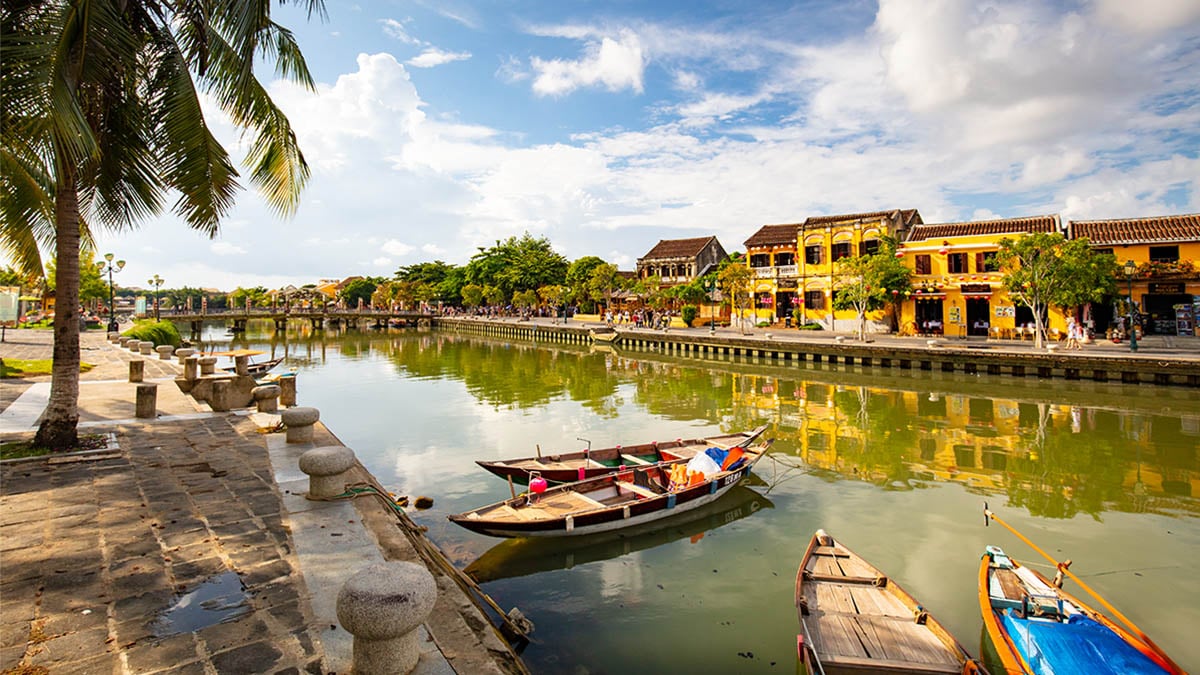
Travel Insurance for Vietnam
Travel & Safety Tips for Vietnam
Popular Vietnam Travel Destinations
Vietnam Embassy & Consulate Information
Do I Need Travel Insurance for Vietnam?
Vietnam recently suspended its travel medical insurance requirement. Previously those entering Vietnam were required to secure insurance with a minimum of $10,000 liability to assist in the event of any COVID-19 treatment. Despite the removal of mandatory coverage, we continue to recommend that travelers purchase travel insurance for Vietnam trips. International medical coverage may help visitors to the country protect against illness and injury while abroad, but addtional coverages like trip cancellation, baggage loss, and travel delay are also available. Typically these coverages are offered as a part of a comprehensive plan. If you are concerned about airline delays or disruptions, unforeseen weather events, sudden illness or injury while overseas, trip cancellation, or other travel mishaps, purchasing trip insurance for Vietnam may be right for you.
How Much is Travel Insurance to Vietnam?
The price of Vietnam travel protection can vary depending on the age, health status, and number of travelers being covered, as well as the duration of the trip and type of coverage.
As risk involved with the trip increases, prices may also increase. For example, a trip to Vietnam that lasts one week may cost less than a two-week trip, even if the type of coverage is the same, due to the extended length of the trip. Additionally, a traveler with pre-existing health conditions can usually expect to pay higher rates than a traveler who does not have any diagnosed pre-existing conditions.
What Does Travel Health Insurance for Vietnam Cover?
Each Vietnam travel medical plan varies just as each trip and traveler varies. A travel medical insurance plan for Vietnam can be purchased as a standalone plan or as a part of a comprehensive travel insurance plan. A comprehensive travel insurance policy offers coverage for various travel-related expenses, such as cancellation, lost baggage, or delays.
Some common coverages to consider for a trip to Vietnam include:
- Motorcycle/Motorbike travel insurance
- Coverage for pre-existing conditions (obtaining a waiver for the condition before traveling)
- Emergency Medical Evacuation
- Accidental Death & Dismemberment
Certain high-risk activities like rock climbing are not covered by all travel health insurance plans. For tourists who want to partake in such activities, it’s highly recommended to add a hazardous sports rider to your Vietnam travel medical plan.
Before purchasing any travel medical coverage for Vietnam, it’s recommended to contact your domestic health insurance provider to understand how your health insurance policy will cover you while traveling abroad. Some domestic health insurance plans can assist with circumstances like hospital stays overseas, while some do not offer international coverage. Getting those details first can help you understand what additional insurance you may need to fill in any gaps in your protection in Vietnam, as well as avoid paying for any excess services you wouldn’t need.
Should I Get Travel Insurance for a Trip to Vietnam?
Travel insurance is recommended for all visitors to Vietnam. Travelers may consider a policy that includes travel-related coverages such as emergency medical treatment, delays, and lost or damaged baggage. To find the right coverage for your next trip and budget, it’s recommended to compare different travel insurance plans and narrow it down by the criteria that suits your personal situation. InsureMyTrip offers a free quote process with unbiased results to assist you in your search for the best travel insurance for Vietnam.
Travel Tips & Safety for Vietnam
Money & Currency Exchange
The official currency of Vietnam is the Vietnamese Dong (currency code: VND). During your trip, you can expect to see prices marked with the symbols ₫ or đ. Coins are rarely used in Vietnam, but they have been produced in values of 200₫, 500₫, 1,000₫, 2,000₫, 5,000₫. Vietnam’s color-coded banknotes are made from two distinct materials: 1,000₫, 2,000₫, and 5,000₫ notes are cotton, while notes with values of 10,000₫, 20,000₫, 50,000₫, 100,000₫, 200,000₫, and 500,000₫ are made from polymer. Seem like a lot of zeros? One running anecdote between travelers to Vietnam is about becoming an “instant millionaire” when holding the Vietnamese Dong.
Credit cards are generally only accepted at hotels and some restaurants. To make purchases elsewhere or ride a taxi, you’ll need to carry local currency. Exchange your home currency for Vietnamese Dong using an ATM, a money exchange desk at a hotel or airport, or a gold and jewelry shop in Vietnam. While money changing services at ATMs, hotels, and airports are convenient, the exchange rate isn’t the best and many of these services charge extra fees for the exchange. Most often, you can find the best exchange rates (and avoid hidden fees) by exchanging currency at a jewelry shop in Vietnam. Gold and jewelry shops can be found along many of the main streets of Vietnamese cities.
Transportation
Public transportation in Vietnam is readily available and always lively. For long-distance travel, domestic flights are the quickest way to reach your destination, while trains offer a slower but much more scenic ride. For reference, one of Vietnam’s most popular train routes between Hanoi and Ho Chi Minh City takes about 35 hours while its flight equivalent takes about 2 hours. Buses, taxis, and private rentals are great for exploring cities and rural locations alike. Buses are generally affordable and comfortable with air conditioning. Taxis and rideshare apps like Grab (Southeast Asia’s most popular Uber-equivalent) are particularly useful for traveling your own routes on your own time. In addition to private cars, it’s also common to hire and ride a motorcycle / motorbike in Vietnam. A motor service (xe ôm) is similar to a taxi, but instead of a car, you’ll ride on the back of a motorbike. If you’re confident about driving your own motorbike in Vietnam, you’ll likely need to own one first. Some travelers choose to buy a motorbike in Hanoi, ride it for a while, and sell it back in Ho Chi Minh City or vice versa.
Risk & Crime
Thanks to the country’s relatively low crime rate and law-abiding citizens, Vietnam is considered a safe destination for travelers. However, petty crime like scamming, pickpocketing, bag snatching is somewhat common, especially near airports, seaports, and train stations. To combat this risk, keep your valuables hidden from sight and close to your body. Better yet, lock your items away in a security box like a hotel safe. Stay aware of your surroundings when using a phone or camera near streets, as drive-by theft by motorbike riders has also been reported. As for scams, never leave your money or credit card with a stranger no matter what they say. If taking a taxi in Vietnam, use reputable companies such as Mai Linh and Vinasun to lessen the chance of coming across a false meter.
While Vietnam’s tropical climate attracts plenty of visitors, this type of weather also opens the door to natural disasters like typhoons and flooding. Heavy rain falls hardest during summer in Vietnam. If your trip is between May to October, keep an eye on local weather and news stations for the most up-to-date forecasts. It’s also best to bring or buy sunscreen and bug-repellent for your trip. Apply sunscreen in the morning and during the day, then bug-repellent around sunset or when applicable. Whenever possible, avoid wild creatures in the jungle and other unregulated areas. Some of the safest and most effective ways to combat the heat in Vietnam are drinking bottled water and wearing light, airy clothing.
Top 15 Travel Destinations & Tourist Attractions in Vietnam
- Ho Chi Minh City (Saigon)
- Hạ Long Bay
- Hanoi
- Hội An
- Phong Nha-Ke Bang National Park
- Phú Quốc Island
- Huế
- Sa Pa
- Nha Trang
- Đà Lạt
- Mekong Delta
- Hà Giang
- Mũi Né
- Ninh Bình
- Ba Be National Park
U.S. / Vietnam Embassy and Consulate Locations
U.S. Embassy and Consulate in Vietnam
- Hanoi, Vietnam – U.S. Embassy
7 Lang Ha Street
Hanoi, Vietnam
Phone: 84.24.3850.5000 - Ho Chi Minh City, Vietnam – U.S. Consulate General
4 Le Duan Blvd., District 1
Ho Chi Minh City, Vietnam
Phone: 84.28.3520.4200
Vietnamese Embassy and Consulate in USA
- Washington DC – Vietnamese Embassy
1233 20th St NW, Suite 400
Washington, DC 20036 United States
Phone: 1.202.861.0737 - San Francisco, California – Vietnamese Consulate General
1700 California St, Suite 430
San Francisco, CA 94109 United States
Phone: 1.415.922.1707 - Houston, Texas – Vietnamese Consulate General
5251 Westheimer Road, Suite 1100
Houston, TX 77056 United States
Phone: 1.713.850.1233 - New York, New York – Vietnamese Permanent Mission to the UN
866 United Nations Plaza, Suite 435
New York, NY 10017 United States
Phone: 1.212.644.0594
Disclaimer: The information contained in this article serves as a general overview of benefits and should only be used for informational purposes. Refer to your individual certificate of insurance for specific coverages, exclusions, and benefits. When in doubt, please contact one of our licensed agents for additional assistance.
Travel Insurance for Aruba
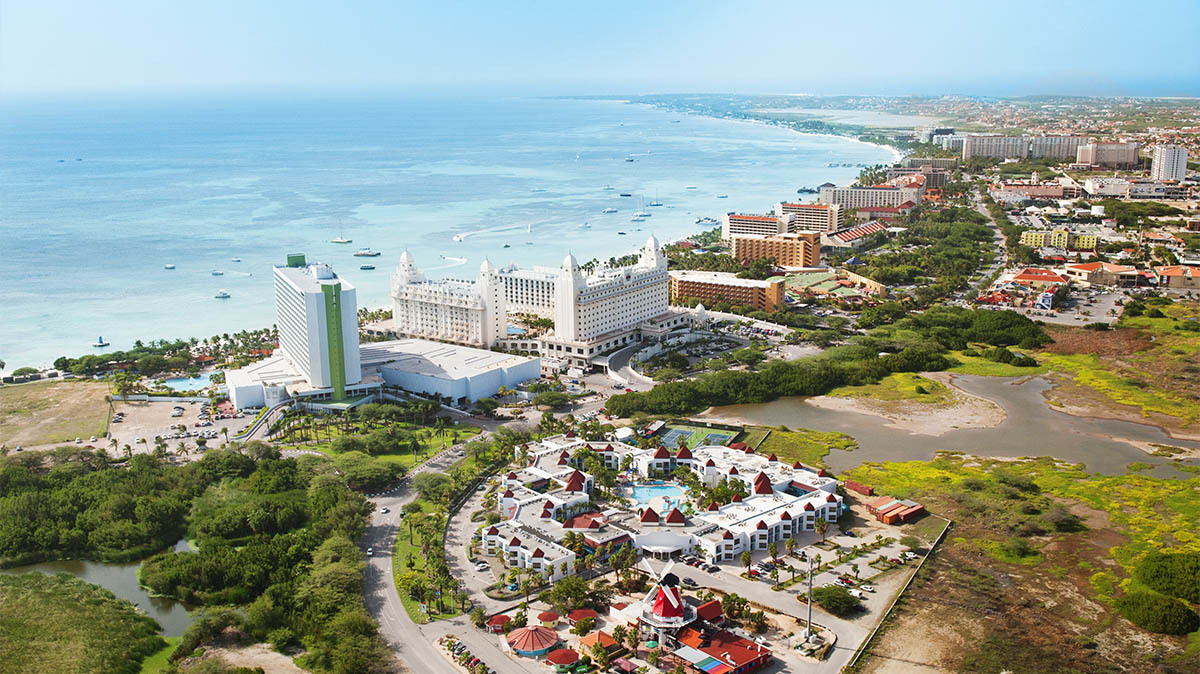
Travel Insurance for Aruba
Travel & Safety Tips for Aruba
Popular Aruba Travel Destinations
Aruba Embassy & Consulate Information
Do I Need Travel Insurance for Aruba?
A charming and picturesque destination, Aruba offers visitors soft white sand beaches, a laid-back Caribbean atmosphere, and plenty of opportunity for adventure. While travel insurance for a trip to Aruba is optional, having coverage for a variety of unforeseen situations is highly recommended. International travel may open the door to unexpected situations like problems with transportation services, illness, disruptions due to weather, and more. However, there is an Aruba travel insurance plan to fit many types of budgets, concerns, or personal needs.
Travelers may encounter interruptions in scheduled transportation at any point – whether flying in by air, arriving by sea, or anything in between. Delays or cancellations can happen for a variety of unforeseen reasons including sudden harsh weather conditions or transportation mechanical issues. In such cases, a travel insurance plan that may include coverage for delays can help bridge the gap between the problem and the solution. In some cases, travel insurance providers may even cover costs associated with situations like childcare or pet boarding fees that come up as the result of a missed connection.
Coverage for illness or injury while overseas is typically provided by a travel medical plan, which may offer assistance with unexpected medical costs abroad. More on Aruba travel health insurance.
Seasoned travelers usually opt for a comprehensive plan which includes coverage for medical events as well as delays, lost baggage, and other travel disruptions.
Overall, the only mandatory travel insurance coverage required to enter Aruba is the Aruba Visitor Insurance, but this will only offer assistance to a traveler with expenses relating to contracting COVID-19 during their stay on the island. For all other travel related concerns, a comprehensive travel insurance policy may offer travelers the most robust coverage for the trip to Aruba. Every traveler is different so be sure to compare different providers, plans, and coverage levels to find what works best for your Aruba trip.
What Does Aruba Travel Health Insurance Cover?
Many providers of travel medical insurance for Aruba may offer the following options for coverage including, but not limited to:
- Emergency Medical Evacuation
- Dental Coverage
- Medical Coverage for Illness or Injury
Some short term travel health insurance plans may offer limited trip protection benefits such as Trip Interruption and Baggage Loss.
Most domestic healthcare insurers don’t extend their coverage abroad, so travel medical plans are the best solution for protection against sudden illness, injury, and more while in another country. International insurance for Aruba trips can fill in the gaps where your domestic healthcare plan cannot. Before purchasing a travel health insurance plan, it is strongly recommended to contact your current health insurance provider to ask about any global benefits that may apply to your stay abroad.
The mandatory Aruba Visitor Insurance will only help cover costs relating to contracting COVID-19, leaving most aspects of an Aruba trip to be the responsibility of the traveler. For this reason, it’s highly recommended to compare coverage for Aruba travel health insurance to find the best plan for your needs and budget and get covered for the duration of your trip.
How Much Does Aruba Travel Insurance Cost?
With no one-size-fits-all travel insurance plan and quite a few variables, rates can fluctuate for everyone. The price of travel insurance for Aruba mostly depends on:
- Number of travelers
- Age of travelers
- Trip’s duration
- Type of coverage
As risk increases, price increases. This means that different rates will be offered for the same travel coverage for large groups as opposed to smaller groups. The duration of the trip also plays a big role in the quote, as more risk and cost is involved with a 6-month trip compared to a weekend getaway. Though a higher coverage limit will raise the price of your insurance plan, if you find yourself in an emergency situation where you really need help, you may end up paying less out of pocket with higher coverage limits.
What is the Best Travel Insurance for Aruba?
Ultimately, the best Aruba travel insurance is a plan that suits a trip’s duration, budget, and each traveler’s individual needs. With so many different providers and types of coverage available, there is likely a suitable plan out there for your next Aruba trip. Enter your trip and traveler details into the quote form to see what’s available for your upcoming travels to Aruba.
InsureMyTrip’s unbiased quote process automatically filters through thousands of plans to find coverage applicable to your party’s situation, making it easy for you to find plans that best meet your travel needs.
Where Can I Buy Travel Insurance for an Aruba Trip?
InsureMyTrip offers a quick, easy, and free way to compare travel insurance for Aruba from many different providers – all in one place.
For a personalized Aruba travel insurance quote, simply enter your trip details in the ‘Get a Travel Insurance Quote’ form. This is where you’ll see the best plans available now and be able to modify coverage selections as you like.
Travel Tips & Safety for Aruba
Money & Currency Exchange
Aruba’s official currency is the Aruban florin (currency code: AWG). When shopping, travelers can expect the symbols Afl or ƒ to represent prices in Aruban florin. Like the U.S. dollar, one Aruban florin can be divided into 100 cents. Money in Aruba includes color-coded banknotes in denominations of ƒ10, ƒ25, ƒ50, ƒ100, and ƒ200, and coins in denominations of 5¢, 10¢, 25¢, 50¢, ƒ1, ƒ2½, and ƒ5. Aruba’s 50¢ coin, commonly referred to as a “yotin” by locals, boasts a unique square shape – thus, this coin is featured in a number of Aruban souvenirs and makes a great gift for coin collectors on its own.
It’s not always necessary to exchange your money for Aruban florin – the U.S. dollar is widely accepted in Aruba at a rate of 1 USD = 1.75 Aruban florin. However, you might still get your change back in Aruban florin. If you pay in USD, be advised that some businesses may reject $50 or $100 bills due to the risk of counterfeits. Other currencies can be exchanged to Aruban florin at banks. All major credit cards are accepted in Aruba, though occasionally you’ll also be asked to show your ID as you pay with card. Cirrus, MasterCard, Maestro, and Visa cardholders should have no problem using ATMs and banks in Aruba.
Transportation
Getting around Aruba is made easy by public transportation, taxis, and a selection of rentals. In fact, Aruba’s capital, Oranjestad, even offers a free trolley from cruise ship docks to shopping districts – just hop right on! Buses from Aruba’s local bus company, Arubus, are affordable and run between major locations. For a more private or custom ride, taxis are usually easy to find and operate on fixed rates so you won’t have to worry about scams or negotiating prices. Aruba lets qualified travelers rent cars to drive themselves, a great option for exploring locations off the beaten path. If you want your own car but don’t want to drive it yourself, hire a private chauffeur or limousine for your travel party.
Risk & Crime
Aruba is widely considered a very safe destination to visit. Although this island nation is one of the safest in the Caribbean, no destination can be 100% risk-free. Petty theft, like bag snatching, does exist in Aruba, so keep your belongings close to your body and hidden from public view whenever possible. In general, it’s best to dress modestly and remain in well-lit, public places during your trip. As for weather, natural disasters like hurricanes sometimes show up in the Caribbean, but most of them bypass Aruba. However, Aruba has been known to experience tropical storms, usually between the months of June to November. Travelers are encouraged to monitor reports from the National Hurricane Center for the most updated weather information prior to traveling to Aruba.
Top 15 Travel Destinations & Tourist Attractions in Aruba
- Baby Beach
- California Lighthouse
- Alto Vista Chapel
- Arikok National Park
- Palm Beach
- Antilla Wreck
- The Butterfly Farm
- De Palm Island
- Ayo & Casibari Rock Formations
- Aruba Aloe Factory & Museum
- Philip’s Animal Garden
- Eagle Beach
- Natural Pool
- Oranjestad
- Mount Hooiberg
U.S. / Dutch Embassy and Consulate Locations
U.S. Embassy and Consulate in the Netherlands & Aruba
- U.S. Embassy The Hague
John Adams Park 1
2244 BZ Wassenaar
Phone: 31.70.310.2209 - U.S. Consulate General Amsterdam
Museumplein 19, 1071 DJ
Amsterdam, Netherlands
Phone: 31.70.310.9209
The Netherlands & Aruba Embassy and Consulate in USA
- Washington DC – Embassy of Embassy Of The Kingdom Of The Netherlands
4200 Linnean Ave. NW
Washington, D.C. 20008 United States
Phone from USA: 1.202.244.5300
Phone from the Netherlands: 31.247.247.247 - San Francisco, California – Netherlands Consulate General
120 Kearny Street, Suite 3100
San Francisco, CA 94104 United States
Phone: 1.415.291.2033 - Miami, Florida – Netherlands Consulate General
701 Brickell Ave., Suite 1600
Miami, FL 33131 United States
Phone: 1.786.866.0480 - Atlanta, Georgia – Netherlands Consulate General
1075 Peachtree Street NE, Suite 1550
Atlanta, GA 30309 United States
Phone: 1.404.879.6760 - Chicago, Illinois – Netherlands Consulate General
303 E. Wacker Drive Suite 2900
Chicago, IL 60601 United States
Phone: 1.312.780.1314 - New York, New York – Netherlands Consulate General
666 Third Avenue, 19th Floor
New York, NY 10017 United States
Phone: 1.646.557.2200
Disclaimer: The information contained in this article serves as a general overview of benefits and should only be used for informational purposes. Refer to your individual certificate of insurance for specific coverages, exclusions, and benefits. When in doubt, please contact one of our licensed agents for additional assistance.
Travel Insurance for Singapore
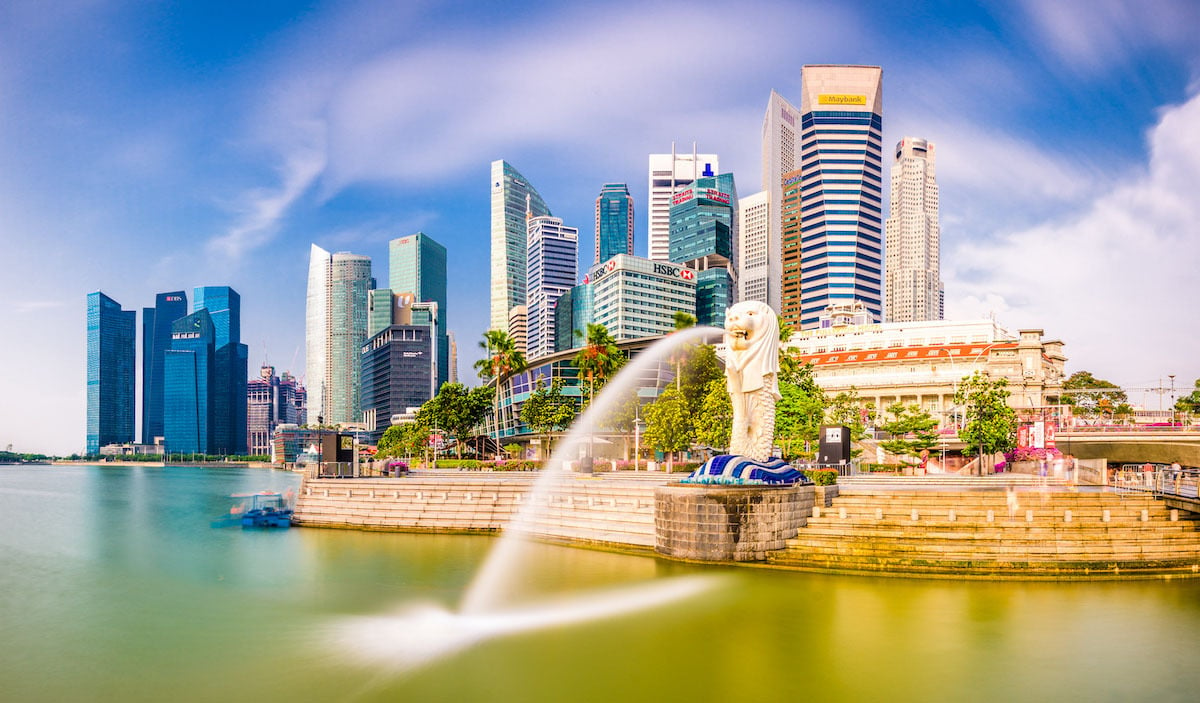
Travel Insurance for Singapore
Travel & Safety Tips for Singapore
Popular Singapore Travel Destinations
Singapore Embassy & Consulate Information
Is Travel Insurance Mandatory for Singapore?
Singapore recently removed the travel medical insurance requirement for visitors. Previously travelers needed to secure coverage for COVID-19-related medical treatment and hospitalization with a minimum coverage amount of $30,000. Although, the coverage requirement has been lifted, we highly recommend that travelers still purchase travel insurance for Singapore trips. Not only can the right coverage protect against suprise costs associated with illness or injury, but travel mishaps like flight delays, weather disruptions, and lost or stolen baggage may also be covered.
What Does Singapore Travel Insurance Cover?
While travel health insurance ensures international visitors have health coverage while abroad, there are several other reasons to consider purchasing a Singapore travel insurance plan. For example, if you plan to fly, you could experience travel delays, damaged baggage, or even canceled flights. Inclement weather and natural disasters can also impact your travel plans. These scenarios may result in lost time and money if you do not have adequate coverage. Fortunately, we offer coverage that helps keep those traveling to Singapore protected against these types of travel hiccups.
Many travelers opt for a comprehensive travel insurance plan, which not only includes required travel medical coverage but also several benefits for travel delays, disruptions, lost luggage, and more. Combining these coverages into a single plan is a great way for travelers to maximize benefits without overpaying.
Travelers who are concerned they may need to end their trip early or cancel their travel plans entirely may want to consider a plan that includes trip cancellation benefits or the popular Cancel for Any Reason (CFAR) coverage. CFAR is optional and has eligibility requirements as well as limitations, so not all travelers will qualify. It is important to understand the difference between cancel for any reason plans and trip cancellation as well as the applicable restrictions to see which is optimal for your specific travel needs. Those interested in CFAR can easily check their eligibility with our free tool. The eligibility tool also helps travelers quickly understand the requirements and limits that apply to the Cancel for Any Reason benefit.
What is the Best Travel Insurance for Singapore Trips?
As we’ve outlined above, there are many options and coverage levels when it comes to purchasing a travel insurance plan for a trip abroad. Finding the “best” travel coverage for Singapore depends on your individual travel plans, itinerary, health, and many other personal factors. Comparing all available providers, benefits, and coverages is the only way to ensure you find the best travel insurance for your Singapore trip. Keep in mind that no matter which plan and options you choose, the coverage will need to meet the minimum travel medical requirements.
Can I Buy Travel Insurance for Singapore After Departure?
The short answer is yes, but the full answer is more nuanced. It’s important to understand the fundamentals of when to buy travel insurance and how timing affects the types of coverage available. While it’s technically possible to purchase travel insurance for Singapore after departure, you’ll likely only be able to find travel medical plans. Because Singapore has minimum requirements, it’s best to purchase travel protection coverage as early as possible to ensure these requirements are met.
In addition, more robust coverage, like a comprehensive plan that includes coverage for travel concerns like trip cancellation, should be purchased after making at least one payment towards the trip. In fact, some plans require the traveler to have already put money down. Other scenarios, like purchasing a plan with CFAR or obtaining a pre-existing conditions waiver are time-sensitive and have eligibility requirements tied to your initial trip payment. To summarize, once you’ve paid for a part of the trip (whether it’s airline tickets, accommodations, or a down payment on a cruise) you have a limited amount of time to buy a plan and have access these additional benefits. In short, you must purchase travel insurance coverage before it is needed and buying earlier maximizes available benefits.
How Much Does Travel Insurance for Singapore Cost?
Many travelers heading overseas to visit the Pacific want to know how much travel insurance for Singapore will cost. The cost of a travel insurance plan depends on the ages and number of travelers in your party, the duration of the trip, and the kinds of coverage purchased. In general, travelers can expect increased premiums with increased risk. For example, a plan covering a three-month trip will typically cost more than week-long getaway to the same destination. Older travelers may also pay more for coverage due to increased risk of medical issues. In some cases, travelers may choose to insure their trip cost, which can also impact the overall cost of the plan.
Does Singapore Travel Insurance Cover Cruises?
Cruise coverage is not included by default on all travel insurance plans, however, many comprehensive plans do include coverage for cruisers. Purchasing a plan that includes cruise coverage is ideal for those planning to travel to Singapore via a cruise ship or plan to take a cruise while visiting the country. The most common coverages on cruise insurance plans typically include emergency medical, emergency medical evacuation, baggage loss or delay, identity theft, financial default, and hurricanes or other unforeseen severe weather. Some additional coverages may be available as well, which cover returning home early, shipboard service disruptions, pre-paid excursion reimbursements, and missed connections. While some cruise lines offer discount insurance directly through their booking process, these seemingly inexpensive plans usually do not provide adequate coverage for the avid cruiser. Purchasing third-party insurance through InsureMyTrip allows cruisers to compare coverage from multiple providers simultaneously, so they can find the right coverage for their individual needs.
Does Trip Insurance for Singapore Cover Extreme Sports?
Like cruise coverage, extreme sports coverage is not included on all trip insurance plans by default, but many offer the option for a hazardous sports rider. Typical travel protection plans will exclude certain action sports and high-risk activities. The hazardous sports rider removes these exclusions. If your trip to Singapore includes any high-risk activities or sports, consider opting for this upgrade to ensure you’re covered.
Where Can I Buy Travel Insurance for a Singapore Trip?
InsureMyTrip makes it easy to compare plans and coverages from many providers all in one convenient place. To get a travel insurance quote for your trip to Singapore, simply enter your information and trip details into the quote form.
Travel Tips & Safety for Singapore
Money & Currency Exchange
Singapore’s official currency is the Singapore dollar (SGD). Travelers may see prices in Singapore marked as SGD, S$, or $. Credit cards are generally accepted at tourist destinations and in other high-traffic areas, although restaurants, supermarkets, and shopping plazas may require a minimum purchase of S$20 to accept payment by card. Be advised that taxis may charge an extra 10% if you’re paying by card, so it may be worthwhile to carry a small amount of cash (S$50 – 100). Cash in Singapore is exchanged in the form of coins and color-coded banknotes. During your trip, you may encounter paper money as well as plastic-like banknotes made of polymer.
It’s often best practice to research current exchange rates shortly before your trip, as rates may fluctuate and money exchangers often offer varying, competitive rates. Travelers can compare exchange rates while walking through People’s Park Plaza, where money exchangers are numerous.
Transportation
Singapore’s combination of bus and metro (MRT, LRT) routes take locals and visitors within walking distance of nearly any point of interest in the “Garden city.” There are three types of tickets for use on both bus and metro:
- Standard Ticket for single trips
- EZ-link card for multiple trips
- Singapore Tourist Pass (STP) for 1, 2, or 3 days of unlimited travel
Public transportation in Singapore is scenic, comfortable, and fast. Of course, travelers may also rent their own car or bicycle to explore on their own time. Plenty of clean and spacious bike paths connect one Singaporean attraction to the next.
Risk & Crime
Singapore is widely considered a very safe country to visit. According to TravelSafe, Singapore scores a 90 out of 100 on the safety scale, surpassing nearly every other country on the list. While the overall risk of crime is very low, travelers should still look out for the unlikely chance of petty crime such as pickpocketing or tourist scams. In general, if you stay vigilant and keep your wits about you, you should be safe in Singapore. It’s relatively common to see travelers walking or biking alone at night between attractions. As for natural disasters, Singapore may be a tropical destination, but the country is not prone to inclement weather. Flash floods, however, have been recorded between the months of October to December, so keep an eye on local weather reports before your trip.
Top 15 Travel Destinations & Tourist Attractions in Singapore
- Gardens by the Bay
- Singapore Botanic Gardens
- Marina Bay Sands
- Clarke Quay
- National Gallery
- National Museum of Singapore
- Night Safari
- Singapore Zoo
- Buddha Tooth Relic Temple
- Jewel Changi Airport
- Kampong Glam
- Merlion Park
- National Orchid Garden
- Singapore Flyer
- Pulau Ubin (Granite Island)
U.S. / Singapore Embassy and Consulate Locations
U.S. Embassy in Singapore
- U.S. Embassy Singapore
27 Napier Road
Singapore 258508
Phone: 65.6476.9100
Singaporean Embassy and Consulate in USA
- Washington DC – Embassy of Singapore
3501 International Place, NW
Washington DC 20008 United States
Phone: 1.202.537.3100 - San Francisco, California – Consulate General of the Republic of Singapore
595 Market Street, Suite 2450
San Francisco, CA 94105 United States
Phone: 1.415.543.4775 - Miami, Florida – Honorary Consulate of the Republic of Singapore
1515 Sunset Drive. Suit No.44
Coral Gables, FL 33143 United States
Phone: 1.305.858.4225 - New York, New York – Consulate of the Republic of Singapore
318 East 48th Street
New York, NY 10017 United States
Phone: 1.212.223.3331
Disclaimer: The information contained in this article serves as a general overview of benefits and should only be used for informational purposes. Refer to your individual certificate of insurance for specific coverages, exclusions, and benefits. When in doubt, please contact one of our licensed agents for additional assistance.
Travel Insurance for the Philippines
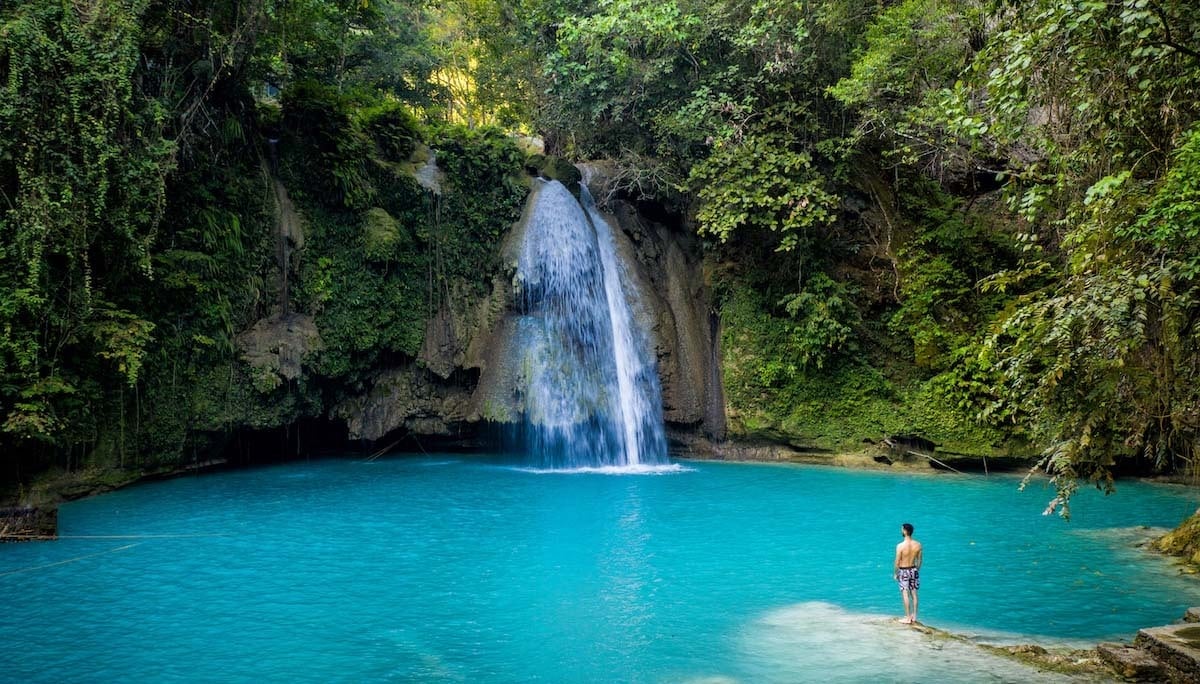
Travel Insurance for the Philippines
Travel & Safety Tips for the Philippines
Popular Philippines Travel Destinations
Philippines Embassy & Consulate Information
Do I Need Travel Insurance for the Philippines?
The Philippines recently removed the travel health insurance requirement for visitors to the country. Previously unvaccinated travelers needed to purchase mandatory coverage for treatment costs for COVID-19 from a “reputable insurance provider” in order to enter the country. Although coverage is no longer required, we recommend that travelers purchase travel insurance for the Philippines to protect against not only illness or injury but also unforeseen travel mishaps, like weather issues, transportation delays, lost baggage, and more.
Travel delays and transportation service disruptions can happen for many reasons. Most tourists and business professionals heading to the Philippines fly with an airline. In some cases, mechanical problems, inclement weather, and other issues can cause temporary or permanent service disruptions resulting in missed connections, lost time, or even canceled flights altogether. Flying internationally comes with a variety of challenges, so purchasing travel protection for the Philippines is a great way to plan ahead and prepare for disappointing outcomes.
Additionally, airlines sometimes mishandle luggage resulting in lost or damaged personal effects. If you are concerned about any of these scenarios adversely affecting your travel plans, consider purchasing relevant coverage to ensure you are protected. Seasoned travelers tend to choose a comprehensive plan, which often includes typical travel medical coverage as well as several benefits for travel delays, disruptions, and lost baggage. Bundling these coverages together is a great way to maximize benefits without overpaying.
For travelers who want even more coverage and are concerned about having to end their travel plans early or cancel them entirely, we offer trip cancellation and cancel for any reason (CFAR) options. Read about the difference between cancel for any reason plans and trip cancellation as well as the restrictions to see which makes the most sense for your travel needs. InsureMyTrip even offers a convenient eligibility tool to help travelers quickly understand the requirements and limits that apply to CFAR. Comparing different providers, benefits, and coverage levels is the only way to ensure you get the best travel insurance for your Philippines trip.
What are the COVID-19 Testing & Quarantine Requirements for Visiting the Philippines?
According to the Philippine Embassy website, foreign nationals aged 18 or older who have received primary series COVID-19 vaccine and at least one COVID-19 booster shot, foreign nationals aged 12 – 17 who are fully vaccinated with primary series COVID-19 vaccine, and foreign nationals under 12 years old, regardless of vaccination status, accompanied by parent or guardian who have received a complete primary series and one booster shot no longer need to present a pre-departure RT-PCR/ART test. Those who do not belong to any of the mentioned categories must present a negative Reverse Transcription – Polymerase Chain Reaction (RT-PCR) test taken within 48 hours or laboratory-administered antigen/ART test taken 24 hours prior to departure from the country of origin.
Once admitted into the country, fully vaccinated foreign nationals are no longer required to observe mandatory facility quarantine but shall self-monitor for any COVID-19 signs and symptoms for seven days, with Day 1 as the date of arrival in the Philippines. They are required to report to the local government unit (LGU) of their destination should they manifest any symptoms. Failure to fully comply with the conditions set forth shall be denied admission and shall be subject to appropriate exclusion proceedings.
What is Philippines Travel Health Insurance?
Perhaps the most common reason to buy travel insurance for a Philippines trip is to cover the cost of international healthcare. Most domestic health insurers do not extend coverage overseas, so travel medical plans provide the perfect solution for protecting those traveling abroad in the event they become unexpectedly injured or ill. Paying for medical expenses out of pocket at foreign hospitals gets expensive fast, especially if treatment requires medical evacuation. Luckily travel medical plans for international trips are also some of the most affordable plans available, making them them a great choice for travelers of any age.
Does Travel Insurance for the Philippines Cover COVID-19?
On January 21, 2020, COVID-19 became a named event, which affects the available travel insurance coverage for new policies purchased. For those buying travel insurance AFTER 1/21/2020 (exceptions may apply if traveling to a country with a Travel Health Notice issued by the CDC), benefits included in comprehensive plans may apply in the following unforeseen scenarios:
- Emergency Medical Coverage: a sick traveler must see a doctor and/or go to the hospital during a trip.
- Emergency Medical Evacuation Coverage: in rare cases, a sick traveler requires an emergency medical evacuation to the nearest appropriate hospital or back home for recuperation.
- Trip Interruption: an extremely sick traveler cannot continue with a trip and must return home.
- Cancel For Any Reason: if you are looking for trip cancellation coverage because you are concerned about the coronavirus, we recommend a plan that includes Cancel For Any Reason (CFAR) coverage since the COVID-19 pandemic is a known event and the travel warnings are foreseen. This benefit is time-sensitive and has other eligibility requirements, so not all travelers will qualify.
Keep in mind that travel insurance helps to cover unexpected events. Similar to a weather event, once an event becomes a “known” event, it may not be a covered reason for cancellation if a traveler purchases insurance after that date. Some plans may also exclude epidemics/pandemics and may not provide coverage for related issues. Please be sure to read the plan details carefully before purchasing.
Over the course of the COVID-19 pandemic, many traditional travel insurance providers have expanded or adapted their existing coverage for travelers. In addition to the coverages above, examples of these may include:
- Reimbursement for covered medical treatment during your trip due to a COVID-19 illness
- Get sick with COVID-19 and must cancel your trip by physician’s order
- Physician orders a quarantine before your trip
- Lost a job during the coronavirus pandemic by no fault of your own
For travelers concerned with cancellation, Cancel For Any Reason (CFAR) offers the most flexibility for trip cancellation and is the only option available to cover fear of travel. CFAR is an optional, time-sensitive benefit with eligibility requirements. Not all travelers will qualify. Full terms of coverage will be listed in the state-specific policy. If eligibility requirements are met, reimbursement is up to 50% – 75% of the insured pre-paid non-refundable trip cost.
Where Can I Get Travel Insurance for a Philippines Trip?
InsureMyTrip makes it easy to compare plans and coverages from many providers all in one place. To get a travel insurance quote for your trip to the Philippines, simply enter your information and trip details into the quote form.
How Much is Travel Insurance to the Philippines?
Most travelers heading to the Pacific want to know how much travel insurance for the Philippines will cost. The overall cost of travel insurance varies based on the ages and number of travelers in your party, how long the trip will last, and the types of coverage purchased. Typically, travelers can expect to pay higher premiums when their travel includes higher risk. For example, a plan covering a multi-month trip will cost more than a week-long getaway to the same destination. Additionally, older travelers, especially those with medical issues or pre-existing conditions may pay more for coverage. In some cases, travelers may be able to insure their total trip cost, which can also affect the final price of the plan.
Travel Tips & Safety for the Philippines
Money & Currency Exchange
The official currency of the Philippines is the Philippine peso (PHP). While in the Philippines, you may see prices denoted by the symbols ₱, P, P$, or PHP. Both coins and color-coded banknotes are exchanged in the Philippines. As a general rule of thumb, it’s best to use the largest banknote where you can because it may be hard to break a 1,000 or 500 peso note at smaller businesses or outside a big city. Coins can be kept and used for tipping, paying for transportation, and many other scenarios.
In larger cities, some businesses may accept USD, but this won’t always be the case. Credit cards may be used for booking domestic flights or upscale hotel stays, but cash remains king for daily transactions. Some businesses that do accept cards may charge an extra 10% commission when you pay with card. Additionally, ATMs out in public areas may not always be safe to use due to a growing identity theft problem, but banks are a great option to stay on the safe side. Whenever possible, try to use an ATM at a bank in a large city or airport before heading to smaller islands.
Transportation
Transportation in the Philippines is generally very affordable. Taxi services are common and even when not using meters, the price of a taxi trip is usually a great value. For a unique experience, travelers may opt to try riding a jeepney, an open vehicle similar to Thailand‘s tuk-tuk. Buses and rental cars are also available in the Philippines, however, due to poor road conditions and crowding, taxis are often more comfortable and convenient. When it comes to long-distance travel within the Philippines, flying is recommended. Domestic flights run between many of the 70+ airports dotting this island nation and are remarkably affordable.
Risk & Crime
Tourist hot spots in the Philippines are generally safe, but they’re also where petty crime tends to take place. To avoid becoming a target for pickpocketing or identity theft, it’s best to keep your personal items hidden from view and as close to your body as possible. Stay vigilant, stay in bright, public places, and dress modestly whenever possible. Keep an eye out for common scams targeting tourists. Additionally, the U.S. State Department recommends travelers avoid the regions of the Sulu Archipelago, Sulu Sea, and Mindanao due to the risk of crime, terrorism, civil unrest, and kidnapping. For more information, save and refer to the U.S. State Department’s complete travel advisory for the Philippines.
Top 10 Travel Destinations in the Philippines
- Boracay
- Cebu
- Bohol
- Manila
- Palawan
- Vigan
- Donsol
- Banaue
- Tagaytay
- Siargao
U.S. / Philippines Embassy and Consulate Locations
U.S. Embassy and Consulate in The Philippines
- U.S. Embassy Manila
1201 Roxas Boulevard
Manila, Philippines 1000
Phone: 63.2.5301.2000 - U.S. Consular Agency Cebu
Waterfront Hotel, Lower Ground Floor
6000 Salinas Dr, Lahug
Cebu City, Philippines
Phone: 63.32.231.1261
Philippine Embassy and Consulate in USA
- Washington DC – Embassy of The Republic of The Philippines
1600 Massachusetts Avenue NW
Washington DC 20036 United States
Phone: 1.202.467.9300, 1.202.467.9363 - Los Angeles, California – Philippine Consulate General
3435 Wilshire Boulevard, Suite 550
Los Angeles, CA 90010 United States
Phone: 1.213.639.0980 - San Francisco, California – Philippine Consulate General
447 Sutter Street, 6th Floor
San Francisco, CA 94108 United States
Phone: 1.415.433.6666 - Honolulu, Hawaii – Philippine Consulate General
2433 Pali Highway
Honolulu, HI 96817 United States
Phone: 1.808.595.6316 to 19 - Chicago, Illinois – Philippine Consulate General
122 S. Michigan Avenue, Suite 1600
Chicago, IL 60603 United States
Phone: 1.312.583.0621 - New York, New York – Philippine Consulate General
556 Fifth Avenue
New York, NY 10036 United States
Phone: 1.212.764.1330 - Houston, Texas – Philippine Consulate General
9990 Richmond Avenue, Suite 100N
Houston, TX 77042 United States
Phone: 1.346.293.8773 - Guam – Philippine Consulate General Agana
590 S. Marine Corps Drive, Suite 601
ITC Building
Tamuning 96913 Guam
Phone: 1.671.646.4620, 1.671.646.4630
Disclaimer: The information contained in this article serves as a general overview of benefits and should only be used for informational purposes. Refer to your individual certificate of insurance for specific coverages, exclusions, and benefits. When in doubt, please contact one of our licensed agents for additional assistance.
The Best Cities for Solo Female Travelers
Solo travel is on the rise, according to Booking.com 54% of women want to travel solo in 2024. With hundreds of cities to choose from it’s important to travel somewhere with great tourism and feels safe. So which city has the best of everything?
At InsureMyTrip we wanted to find out what the best city is for solo female travelers and we wanted to compare these cities to the last three years to see how the rankings have changed. We ranked 62 cities based on data points relating to cost, safety, gender equality (based on gender gap reports from WEForum and Georgetown Institute for Women, Peace and Security), and tourism. This gave us a definitive list of the best places for female solo travel.
| Rank | City / Country | Country | Ranking Change Since 2022 | Ranking Change Since 2023 | Overall |
|---|---|---|---|---|---|
| 1 | Munich,Germany | Germany | 1 | 4 | 7.36 |
| 2 | Madrid,Spain | Spain | -1 | 0 | 7.21 |
| 3 | London,United Kingdom | United Kingdom | 19 | 14 | 7.03 |
| 4 | Lisbon,Portugal | Portugal | -1 | 6 | 6.91 |
| 5 | Barcelona,Spain | Spain | 2 | 1 | 6.84 |
| 6 | Dubai,United Arab Emirates | United Arab Emirates | 2 | -5 | 6.79 |
| =7 | Berlin,Germany | Germany | 10 | 22 | 6.71 |
| =7 | Chiang Mai,Thailand | Thailand | 9 | -4 | 6.71 |
| 9 | Amsterdam,Netherlands | Netherlands | 10 | 5 | 6.70 |
| 10 | Copenhagen,Denmark | Denmark | 3 | 18 | 6.69 |
Key Findings
According to our data, the best city for female solo travel is Munich, Germany with an overall score of 7.36, Munich has increased four places since 2023. Germany is one of the best-rated countries for equality, scoring the top overall score of 10 for that category.
The second-best country for solo female travel is Madrid, with an overall score of 7.21, this is the second year in a row Madrid has ranked second. Madrid also scores 100 for the absence of legal discrimination (10) on the Georgetown Institute for Women, Peace, and Security index.
The third best place for solo female travel is London, with an overall score of 7.03, London has increased 14 places to third. London has some of the best tourism metrics with a whopping 112 billion views on TikTok, 4 billion more than Paris, in second for TikTok views with 108 billion.
The remainder of the top 10 is Lisbon, Portugal (6.91), Barcelona, Spain (6.84), Dubai, UAE (6.79), Chiang Mai, Thailand (6.84), Amsterdam, Netherlands (6.79), Copenhagen, Denmark (6.71), and Hanoi, Vietnam (6.71).
Safest Cities for Female Solo Travel
For all travelers safety is important to consider when visiting a new place, especially when going solo. At the top of our list, for the third time in a row, is Medina, Saudi Arabia with an overall safety score of 9.08. This is followed by Chiang Mai, Thailand (9.08), Dubai (8.93), Macao, China (8.66), and Heraklion, Greece (8.55).
For the least safe cities to visit we have Johannesburg, South Africa, scoring just 0.54 overall for safety. The second least safe city is Singapore with an overall safety score of 3.25. This is followed by Kuala Lumpur, Malaysia (3.44), Paris (3.46), and Delhi, India (3.63). When traveling to these cities it's important to follow travel advice and make sure you stay safe.
Cities With the Best Gender Equality
Being treated fairly when on holiday can be a big factor in choosing your next getaway, no one wants to experience discrimination. We looked at how each country ranked for overall gender equality based on the Gender Gap Report by WEForum and the Absence of Legal Discrimination based on the Georgetown Institute for Women, Peace, and Security.
The four most equal countries are all in Europe. Munich and Berlin in Germany rank first in our equality metrics. In second is Brussels, Belgium with an overall equality score of 9.51, third is Dublin, and in joint fourth is Madrid and Barcelona in Spain with an overall equality score of 9.38.
There are two countries which make up our bottom five cities for gender equality, with Malaysia scoring just 1.57 overall, this includes cities Johor Bahru, Penang Island, and Kuala Lumpur. The second least equal country is Saudi Arabia scoring 2.54 overall for equality, this includes the cities Riyadh and Medina.
Best Cities for Tourism
Solo traveling is great because you get to pick exactly what you want to do, without worrying about whether others would enjoy it. Although it's still important to consider the quality of what you're doing, there's no point in doing activities you won't enjoy.
At the top of our list is London, with an overall tourism score of 9.84, closely following in second is Istanbul, Turkey with an overall tourism score of 9.79. The remaining top five are Paris(9.6), Dubai (8.02), and Barcelona (6.6).
Our cities with the lowest overall tourism score are Osaka, Japan (4.41), Macao, China (4.48), Beijing, China (4.52), Riyadh, Saudi Arabia (4.59) and Mumbai, India (4.61).
Cities with the Lowest Daily Travel Costs
With the cost of living increasing across the globe, it's important to travel somewhere within your price range. The top three cities are all in India with Jaipur coming at the top with a daily travel cost of just $19 (10), second is Chennai with a daily travel cost of $29 (9.67) and Delhi with a travel daily cost of $45 (9.14). In fourth is Chiang Mai, Thailand at $46 a day (9.11) and in fifth is Hanoi, Vietnam at $50 a day (8.97).
On the other hand, the most expensive cities to visit are mostly within the United States. While this will reduce the amount spent on flights, as the average airfare is up 27.7% since 2020, the daily travel cost is significantly higher than in our least expensive cities.
At the top of our list is Orlando, with an overall cost score of 0, and a daily travel cost of $321, $292 more a day than Jaipur. In second is New York City with a daily travel cost of $316 (0.17), in third is Las Vegas at $310 daily travel cost. In fourth is our only bottom five out if the U.S. - Sydney has a daily travel cost of $289 and our fifth most expensive is back in the US in Los Angeles, with an average daily cost of $252 (2.09).
Conclusion
Munich takes the crown as the best city for solo female travel in 2024, scoring high in safety, gender equality, tourism appeal, and affordability.
Medina, Saudi Arabia is one of the safest cities for the third year, emphasizing secure environments for solo female travelers. Cities in Germany top the list for the safest cities on our list. London shines in tourism, while Jaipur, India, emerges as the most budget-friendly destination. Financial considerations spotlight the U.S. with Orlando, New York City, and Las Vegas ranking the least cost effective cities.
Methodology
Each data point consists of the latest research available from reputable sources. The data was standardized using minmax normalisation. The minmax normalisation value is multiplied by 10 to create a score (between 1-10). A score of 10 is always the best result, while a score of 0 is the worst. Each city is then ranked on their overall average rating across all data points which includes both city-level data and one country-level data point.
InsureMyTrip segmented factors into four categories, (Safety, Equality, Tourism, and Cost) as well as providing an "overall rating" for each of the cities. The categories were organized to allow travelers to find the ideal city based on what was most important to them. For example, if travelers are worried about walking around at night, they can make an informed decision on where to go. If, instead solo female travelers want to go somewhere popular on social media with a lot of culture they can search in the 'Tourism' tab.
Sources
-
Absence of Worry About Attacks Based on Gender
Index score based on a tourist sample's feelings of concern about being attacked in the area based on skin color, gender, ethnic origin, or religion
Numbeo -
Feeling Safe Walking Alone at Night
Index score based on a tourist sample's feelings of concern about walking alone at night
Numbeo -
Quality of Things to Do
Average rating of top 25 tourist attractions
Google Reviews -
TikTok Popularity
Number of TikTok posts per discover city page
TikTok -
Gender Equality
Global Gender Gap Report 2023
WEForum -
Absence of Discrimination
Aggregate score of absence of legal discrimination against woman
Georgetown Institute for Women, Peace and Security -
Cost
Average daily cost of traveling in different cities
BudgetYourTrip





